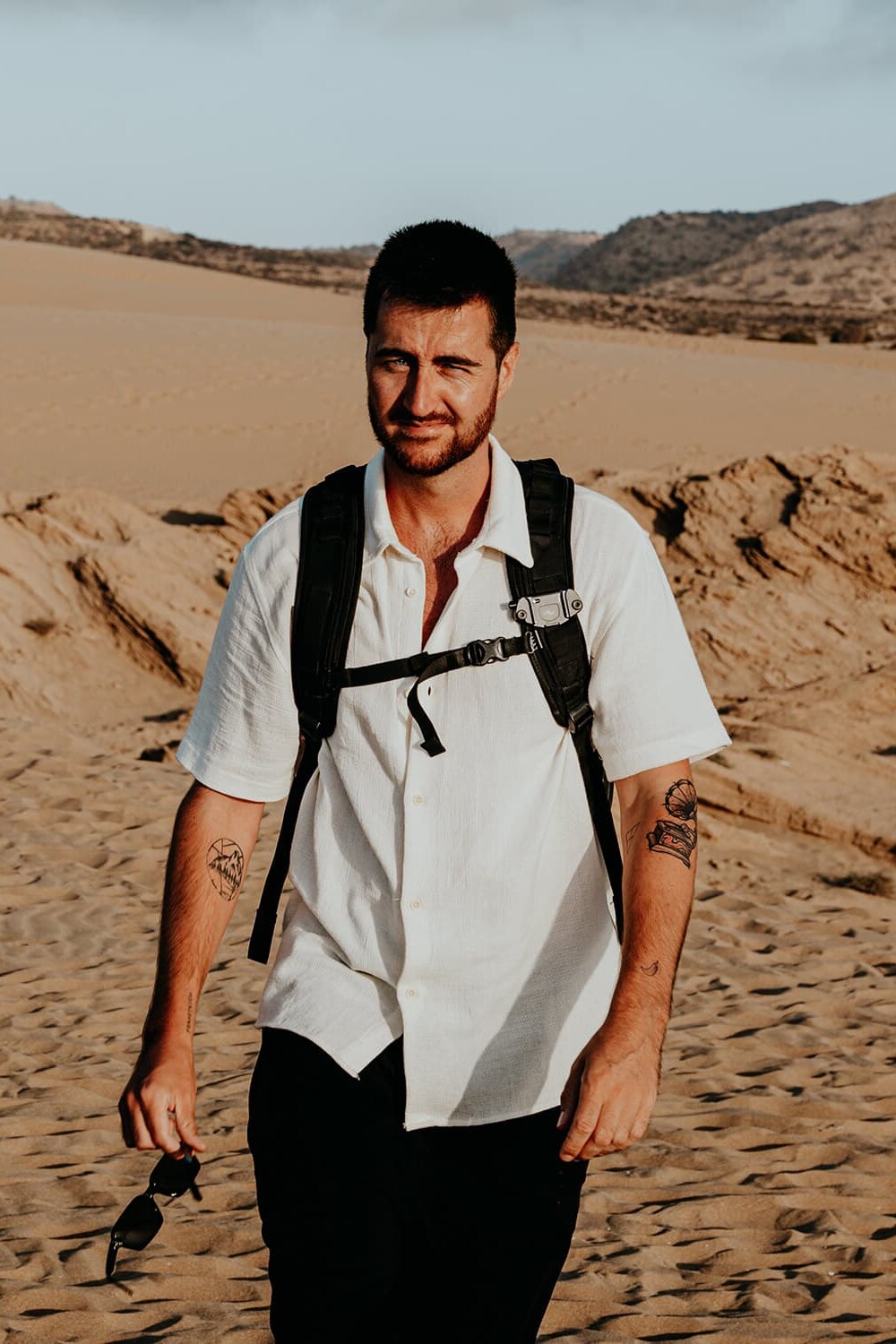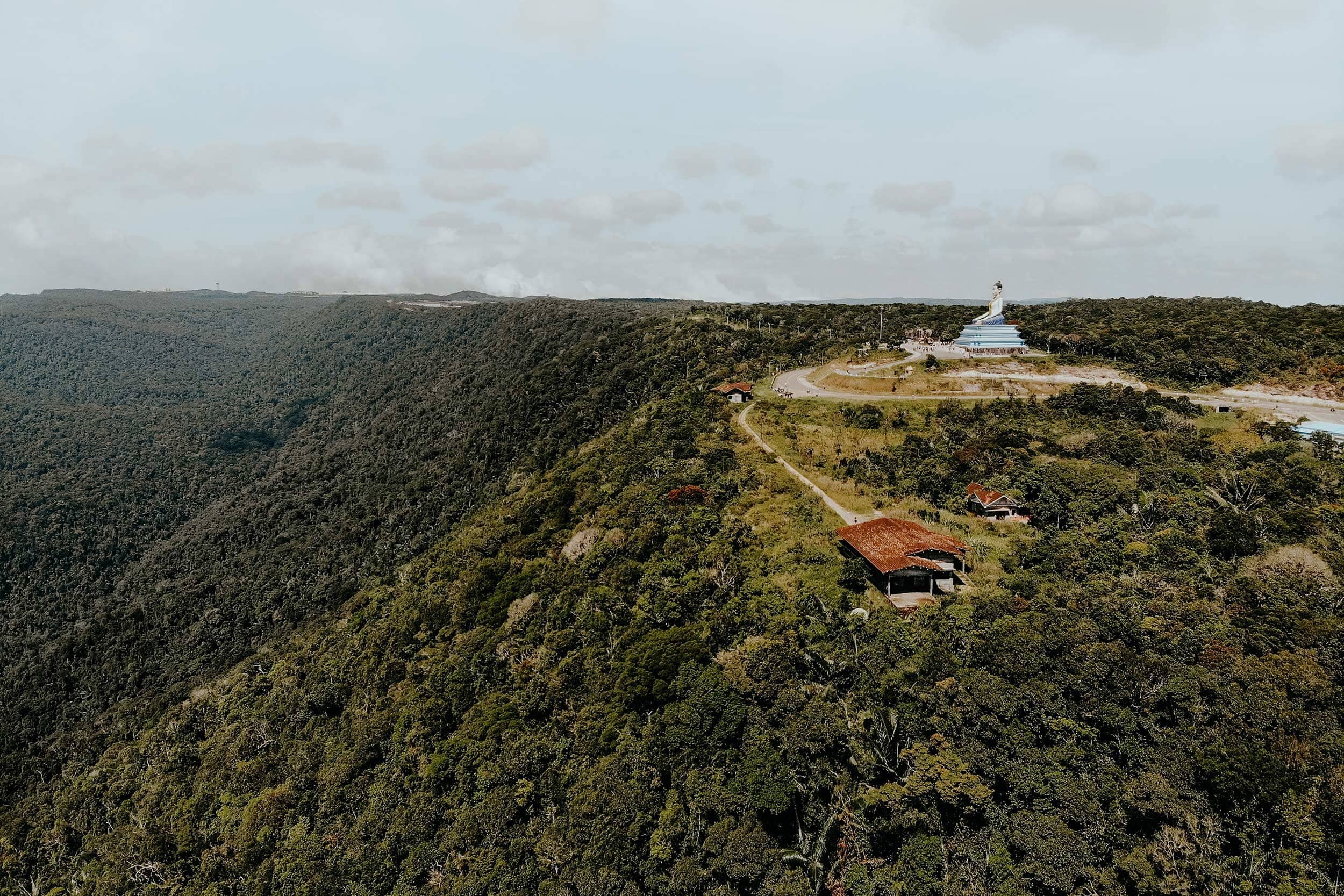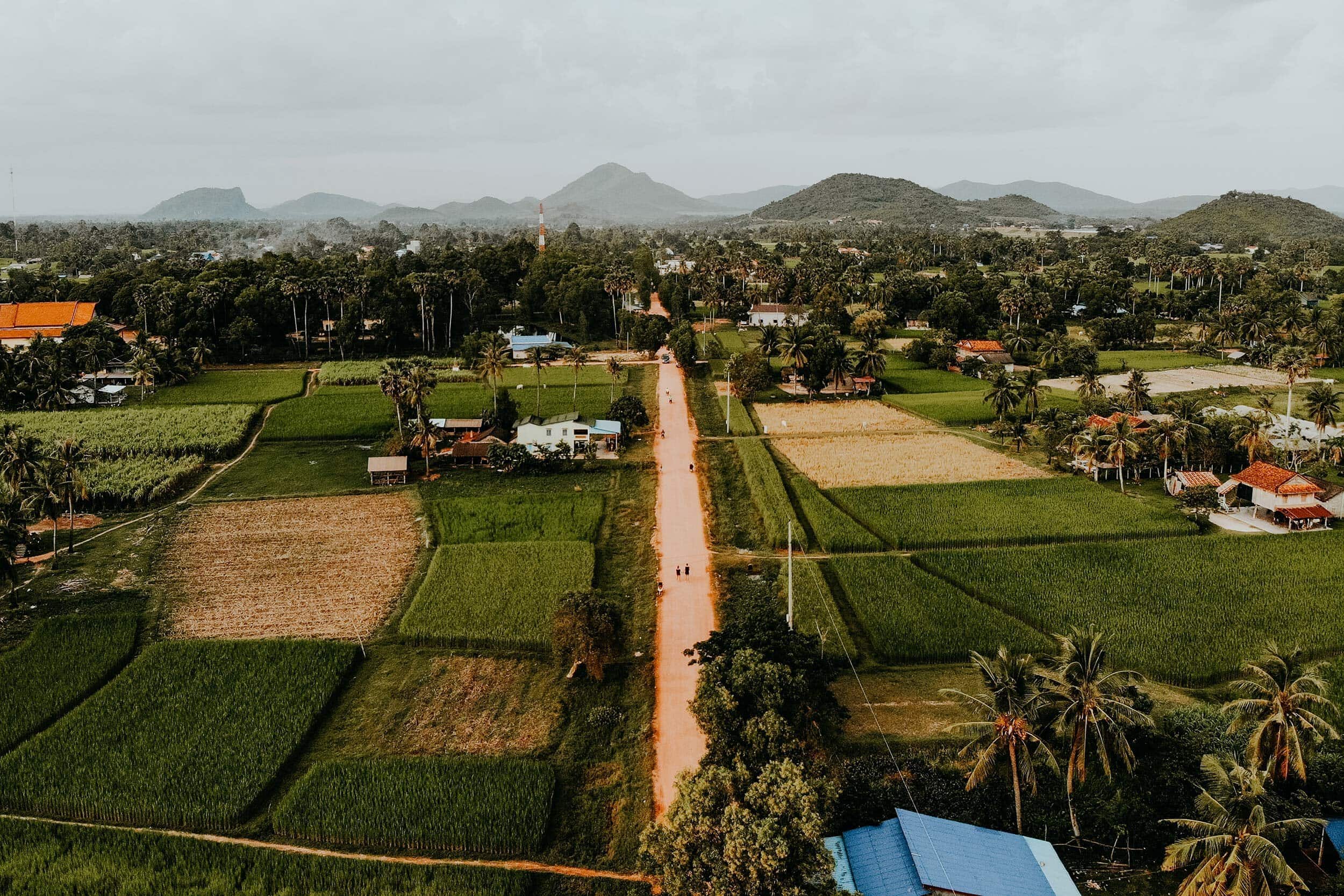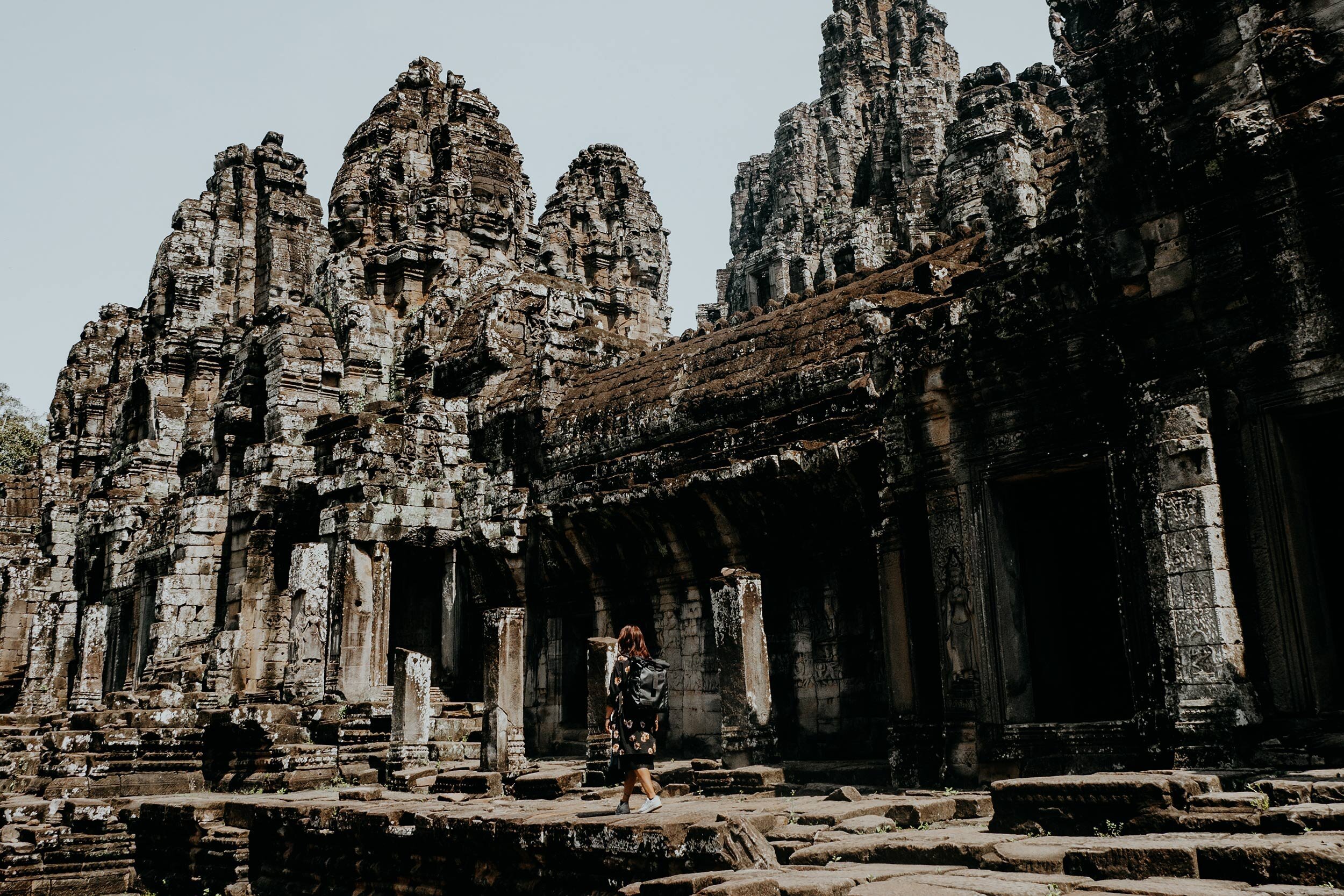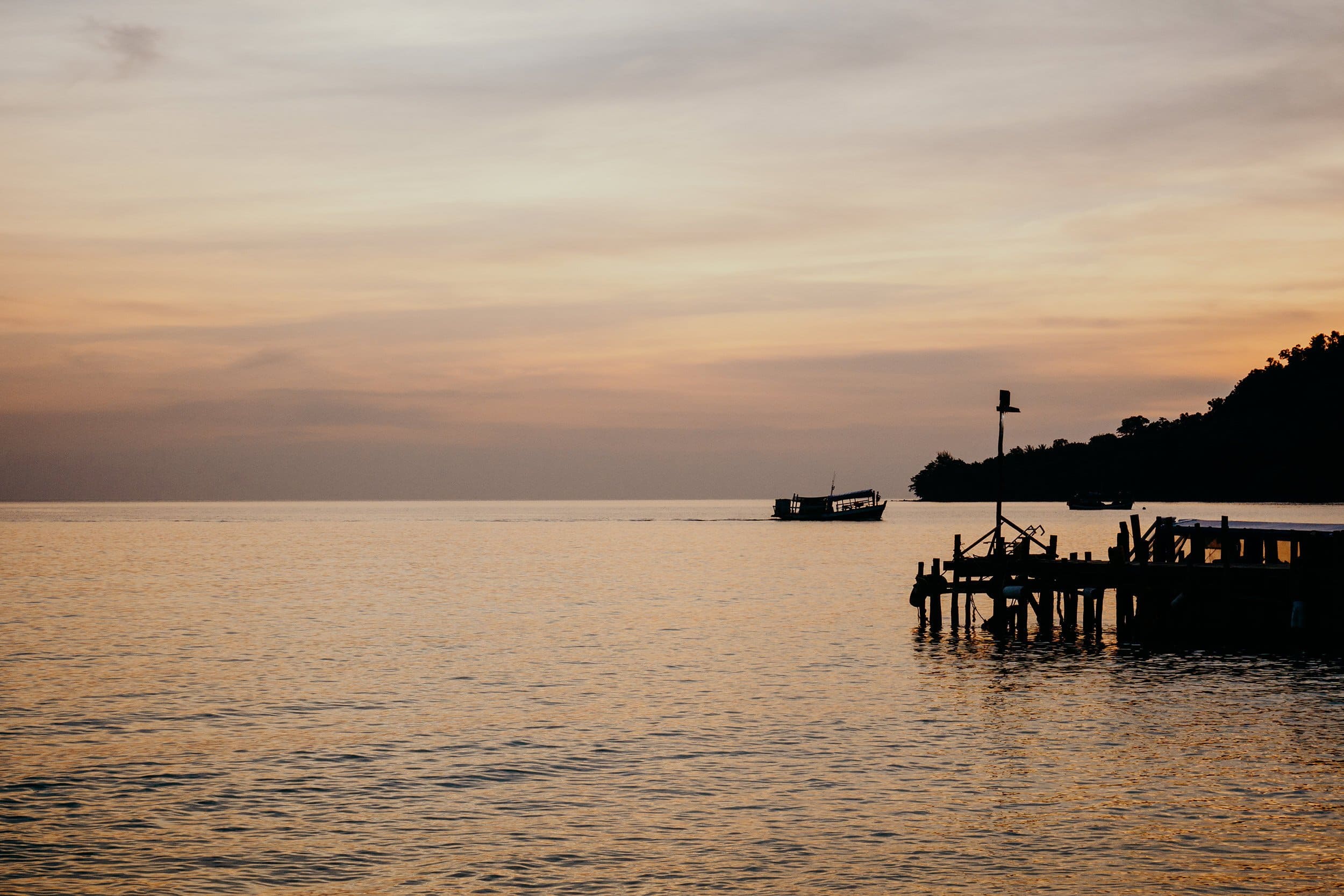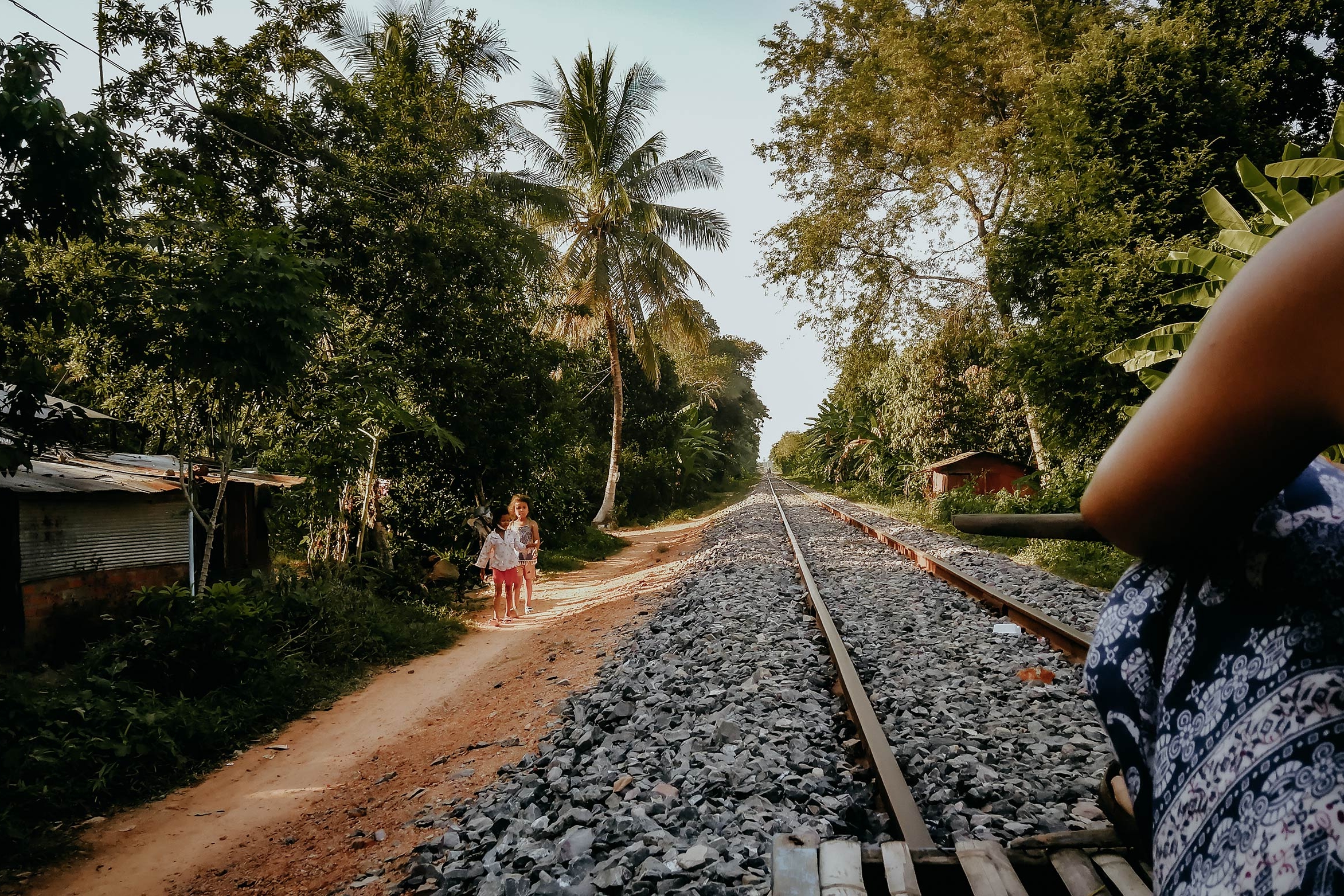When you start planning your trip through Cambodia, you’ll probably be hyped to see the world famous Angkor Wat temple in person, and that’s for an excellent reason.
With over a thousand temples dotted throughout the complex, Angkor is considered the most important archaeological site in the whole of South-East Asia.
At the Angkor temple complex, located just outside Siem Reap, you will discover the beauty in temples like Bayon, Angkor Thom, Ta Prohm and of course Angkor Wat.
This guide provides everything you need to know about visiting Angkor Wat in Cambodia.
If you choose to use any of the links on this page, I may receive a small commission at no extra cost to you. By using these links, you’ll have a direct impact on WTSW and my ability to continue to create free insightful travel content for you. If you find any of my tips useful, you can support me by buying a virtual coffee here.
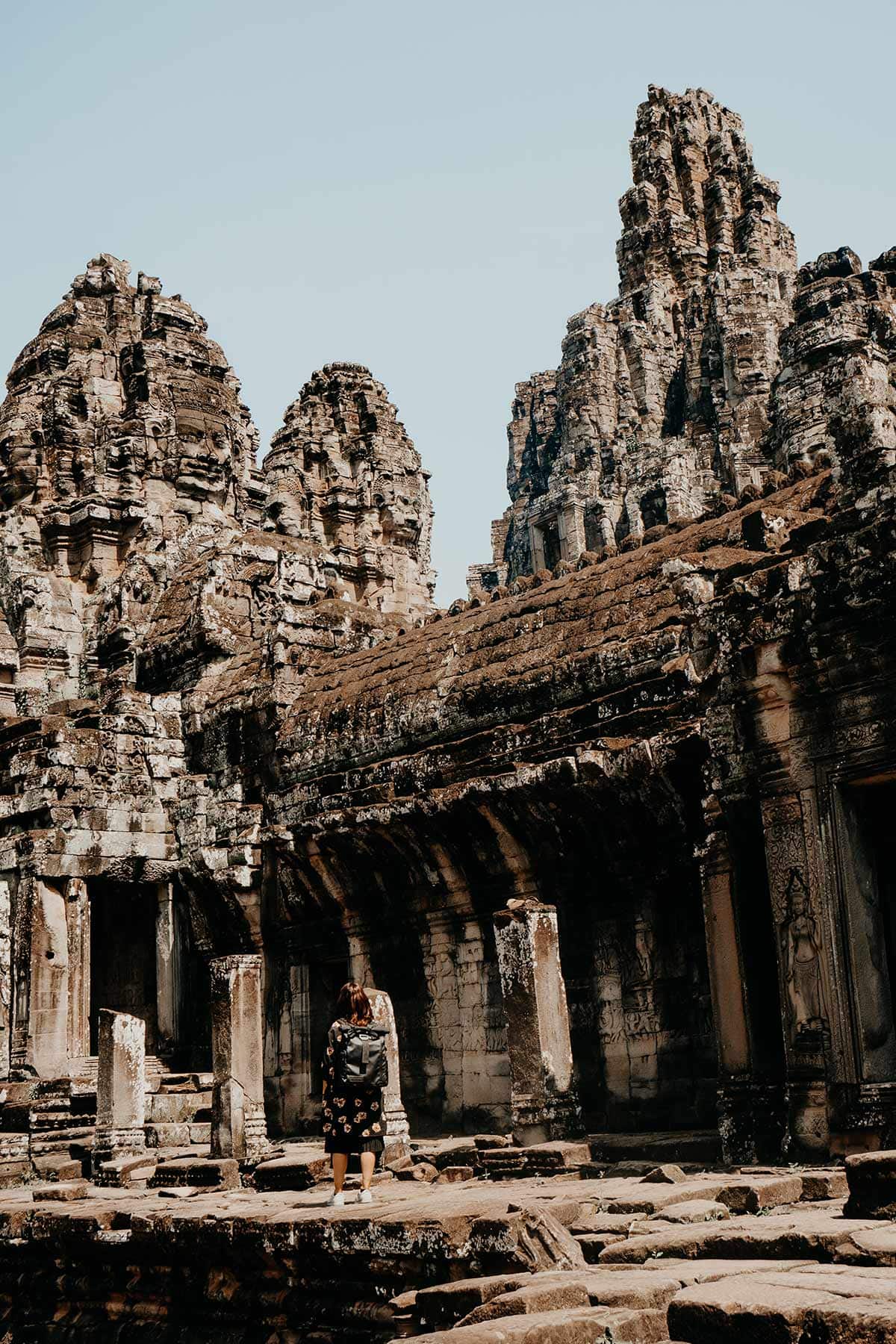
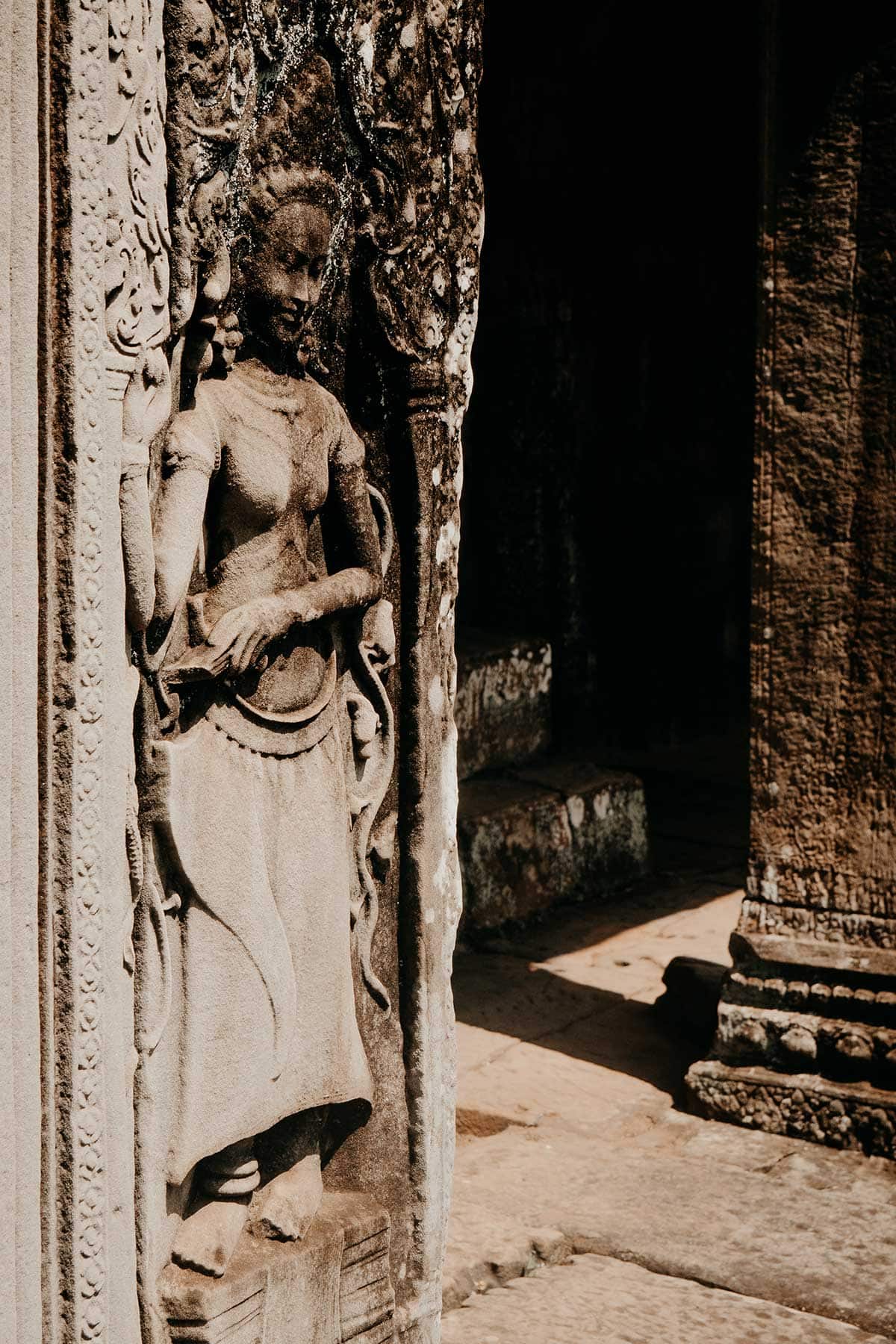
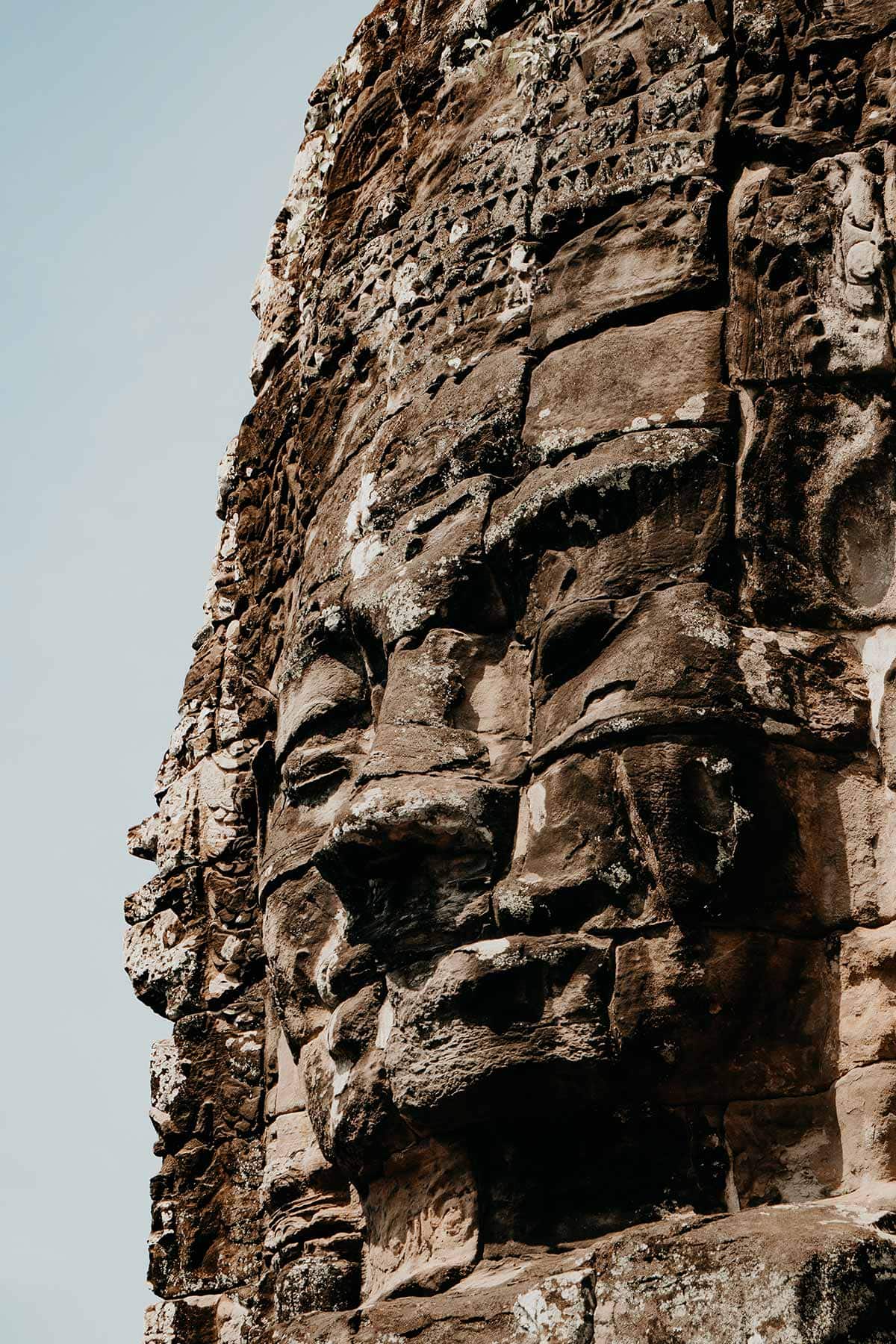
A travellers guide to Angkor Wat, Cambodia
Where is Angkor Wat
A brief history of Angkor Wat
Angkor is the world’s largest religious monument with over a thousand temples. Most travellers call the whole complex Angkor Wat, but that is not entirely correct.
In fact, only the most famous temple of the complex is named Angkor Wat. The temple was originally built as a Hindu temple dedicated to Vishnu during the Khmer Empire. At the end of the 12th century and was gradually transformed into a Buddhist temple.
With over 2.5 million visitors yearly the temples of Angkor are the main reason for people to travel to Cambodia. With so many travellers it is wise to strategically plan your trip to the temples of Angkor.
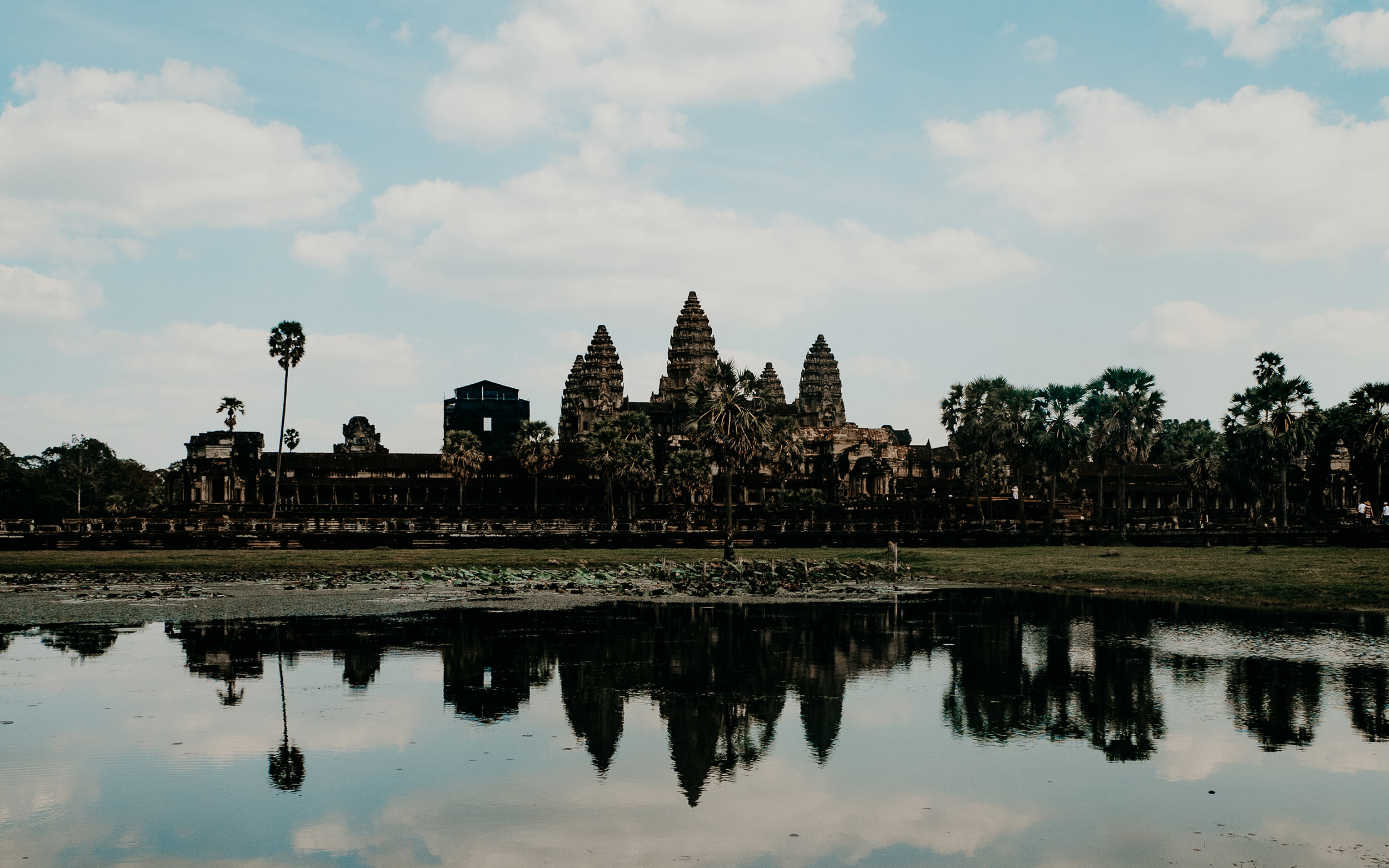
Angkor Wat entrance fee as of 2024
The entrance fee depends on the number of days exploring Angkor and which temples you are willing to visit.
The Angkor Wat entrance fee comes in three options and has to be purchased in person at the official ticket office.
The ticket office opens at 5 am, so arrive a bit earlier or buy your tickets a day in advance.
To my surprise, and contrary to other monumental complexes around the world, the entrance fee to Angkor Wat is still exactly the same as during my visit here in 2018.
Angkor Wat ticket options
One-day ticket
$37
Three-day ticket
$62
Seven-day ticket
$72
To speed up the process, I’d recommend bringing a recent passport photo, as it is a requirement for anyone obtaining an entrance ticket to Angkor Wat.
If you didn’t bring one, don’t worry, they also offer the option to take a mugshot at the ticket desk.
If you are planning to follow this guide a one-day ticket is enough to see the highlights of Angkor. But with so many impressive temples it can be quite a good idea to spend three or seven days at the Angkor Archaeological Park.
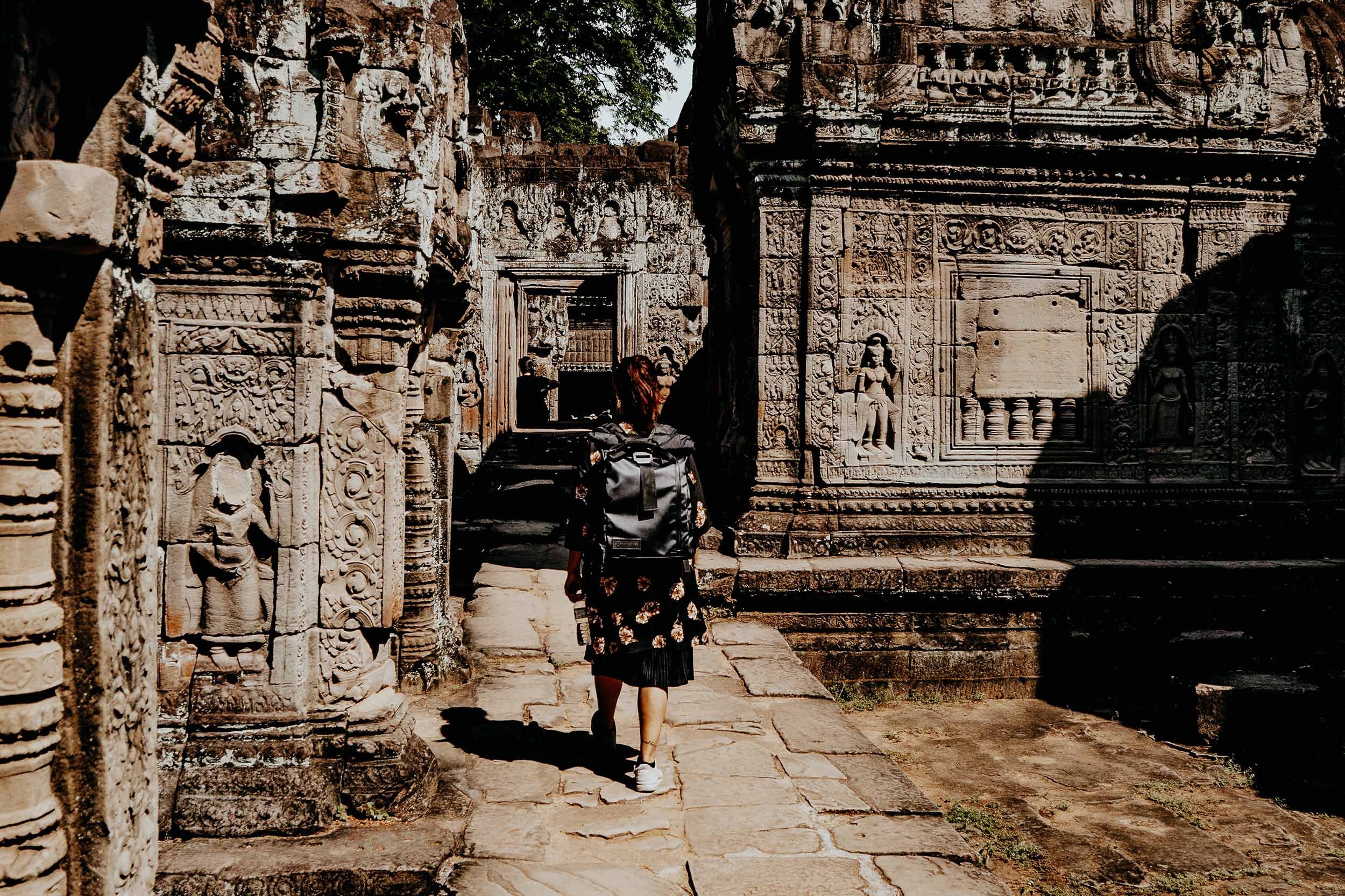
Things to see and do in Angkor Wat
With so many temples spread over an area of 400 square meters, it is good to know which ones are worth visiting. Below you can read about the temples we liked the most. All the temples below can be visited in a day if you make a custom route with your tuk-tuk driver.
Start with sunrise at Angkor Wat
Start your visit with sunrise at Angkor Wat and let your tuk-tuk driver pick you up at your hotel around 4 AM. The feeling of hitting the road when it’s still dark and knowing what is to come is a great part of the experience and we would definitely recommend it.
Where | Angkor Wat
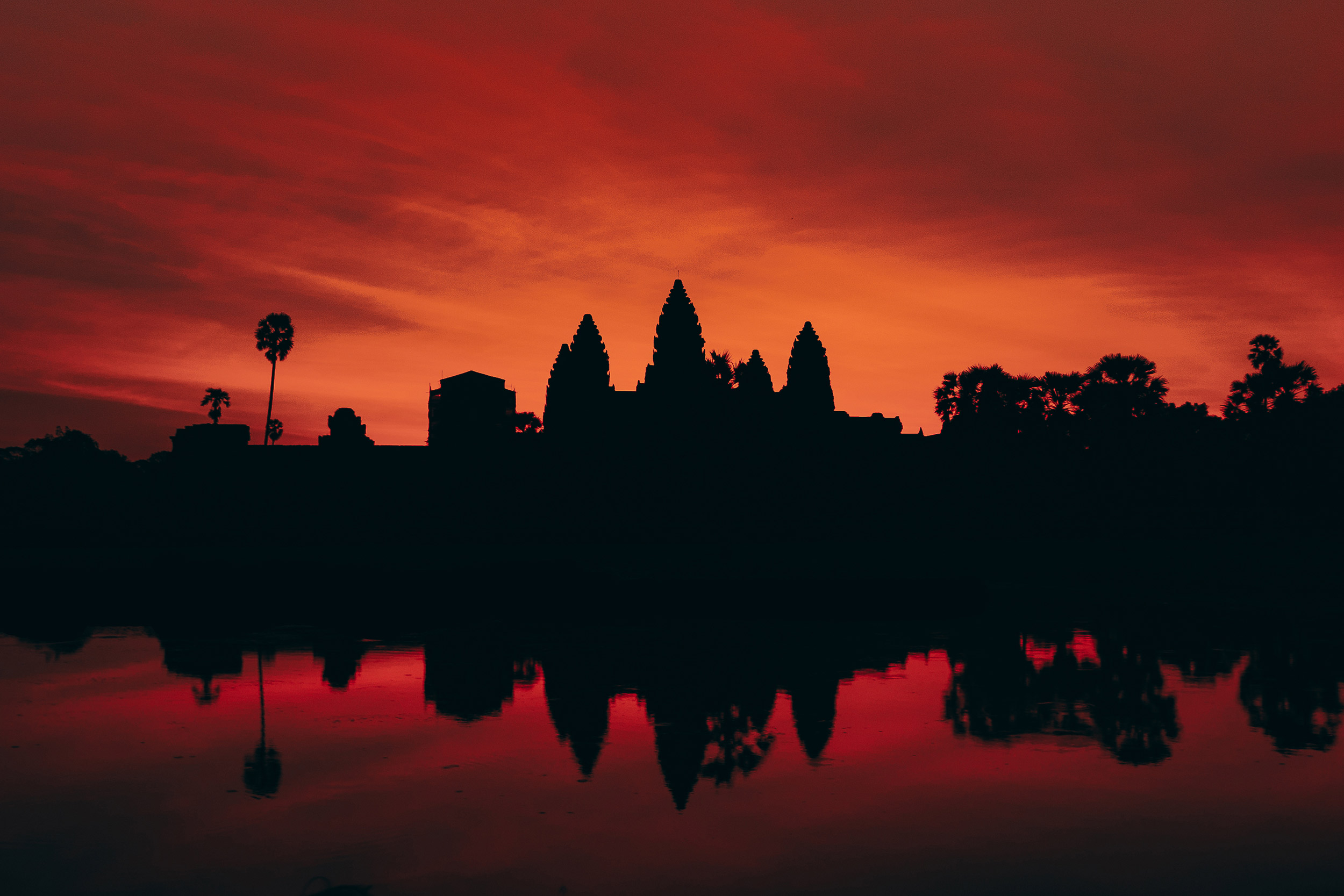
Explore Ta Prohm – Cambodia’s famous Tomb Raider temple
At Ta Prohm, it is nice to see how nature took over the temples.
Try to plan this temple directly after your sunrise mission at Angkor Wat. Ask your tuk-tuk driver to take you there so you will arrive before it is officially opened.
This temple was used as a filming location for the movie Tomb Raider and is one of the most authentic-looking temples you will come along when exploring Angkor.
Where | Ta Prohm
Built | 1186 CE under the rule of King Jayavarman VII
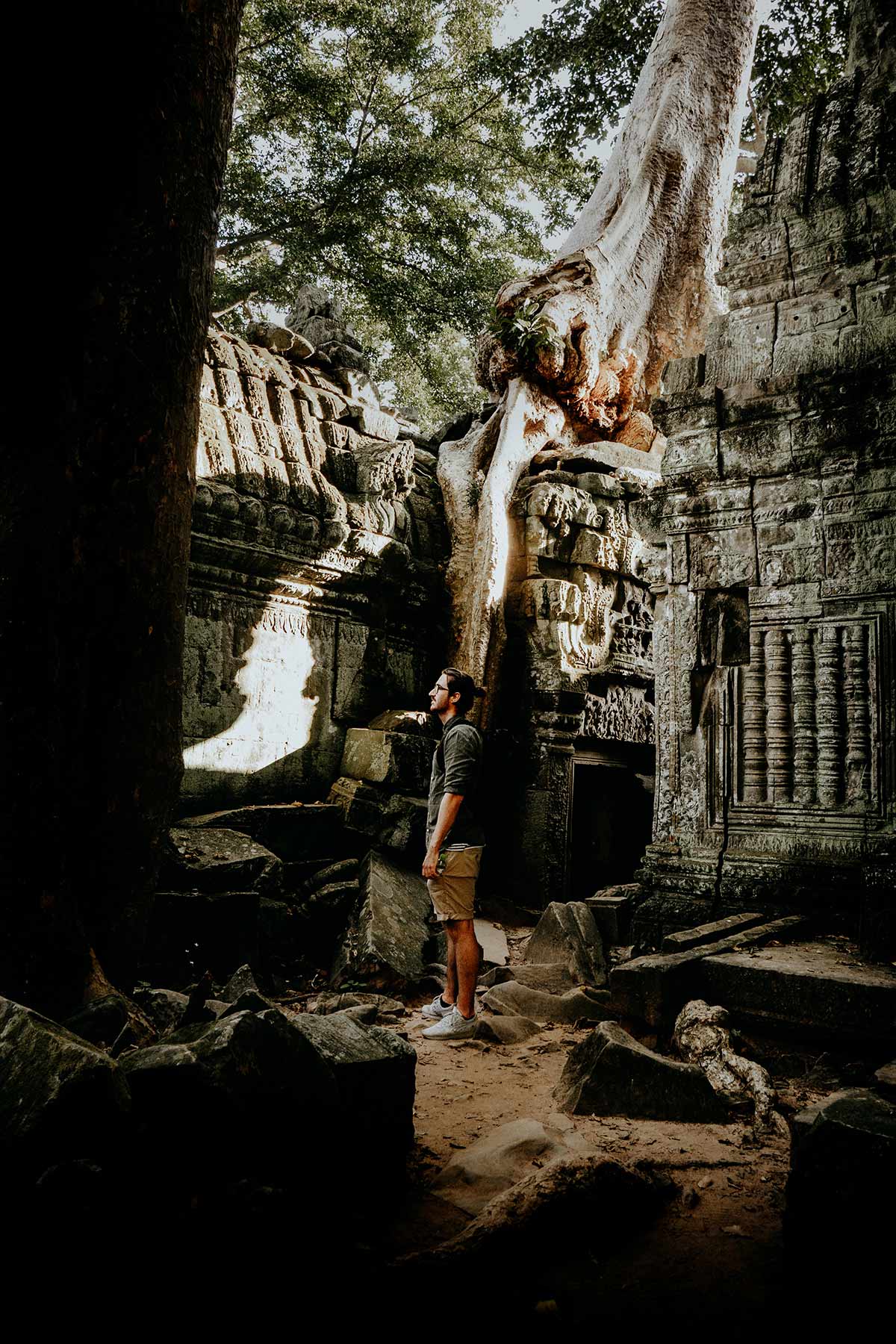
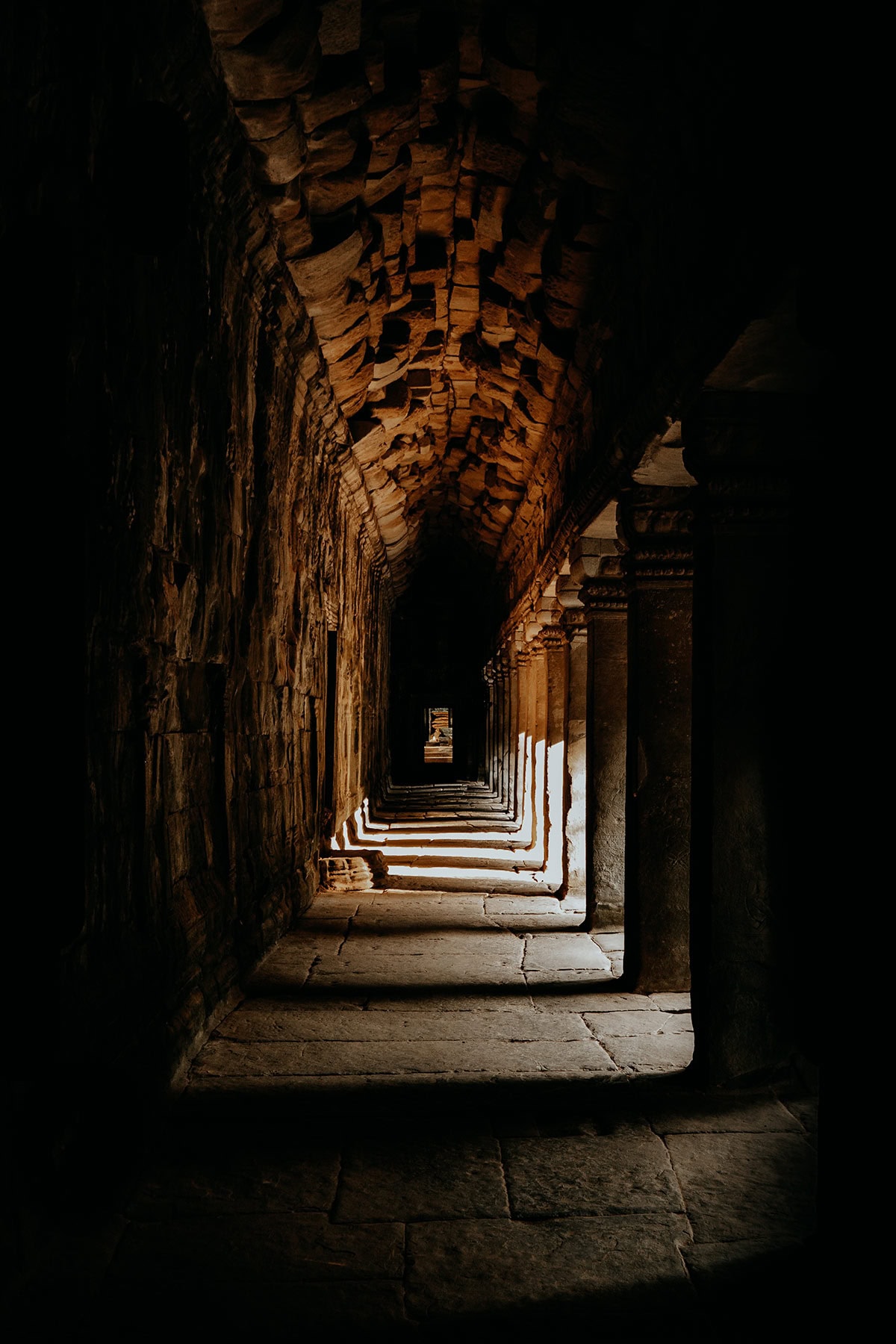
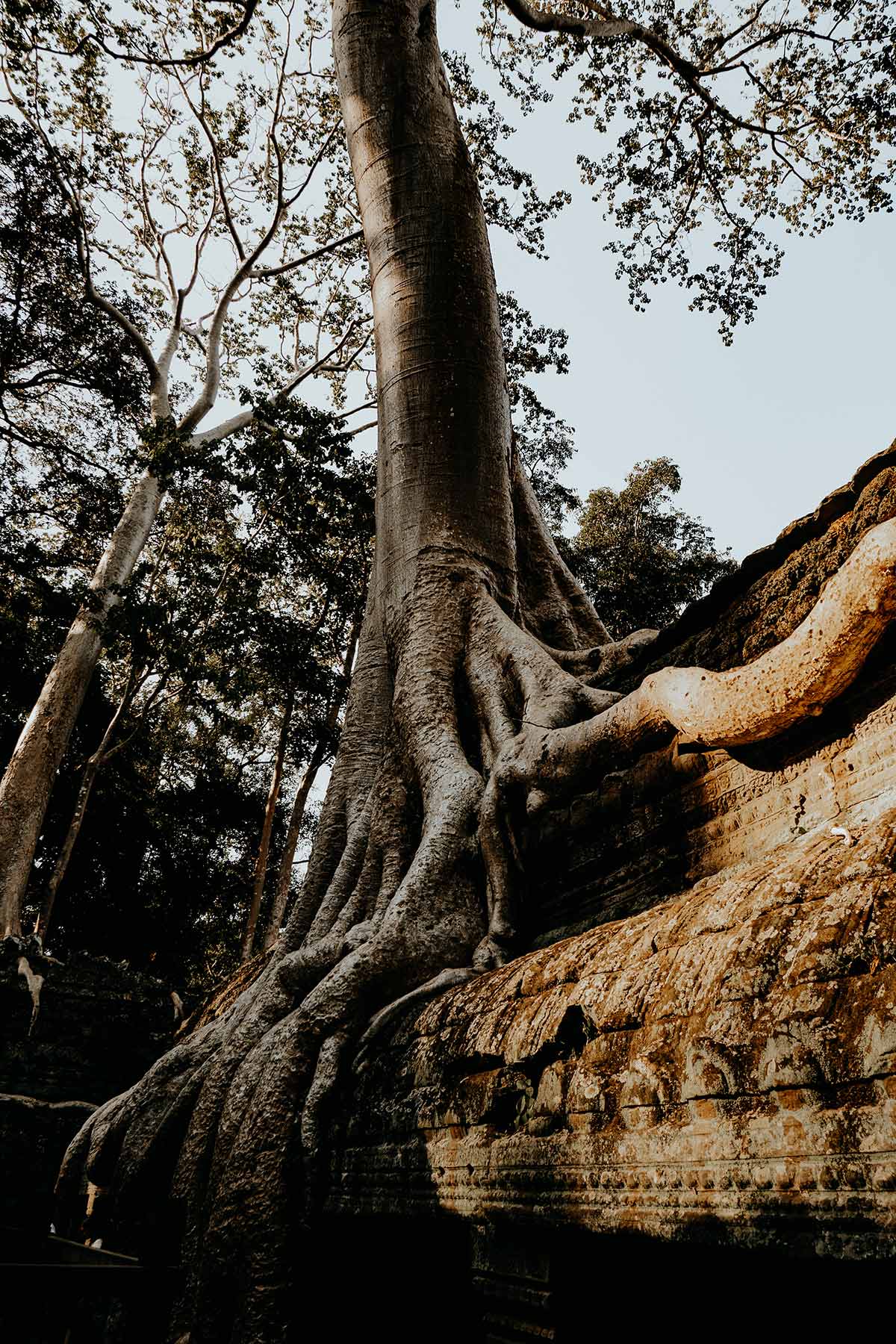
Wander around the enchanting Bayon Temple
The Bayon temple is most famous for having 54 towers with each four faces of Brahma on it. With a total of 216 faces, it isn’t strange that Bayon is also called the ‘Face Temple’. Plan your trip to the Bayon Temple around lunchtime as it will be less crowded. This allows you to have a lot of photography freedom.
Where | The Bayon Temple
Built | 1181 CE under the rule of King Jayavarman VII
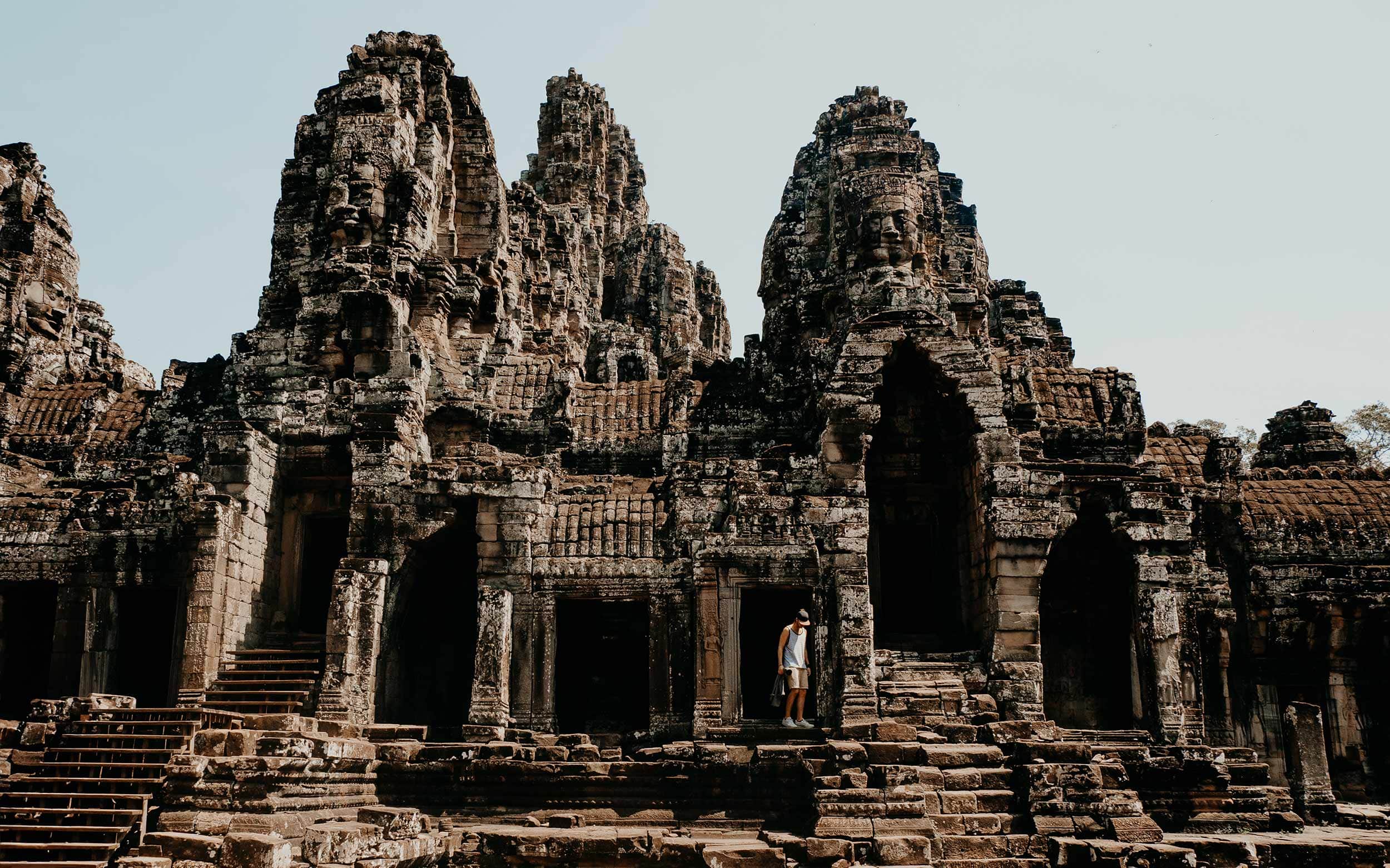
Preah Khan
One of the biggest Cambodian temples is Preah Khan. It is the largest flat temple in Angkor meaning that all the parts of the temple are at ground level. Just like Ta Prohm, this temple is a good example of nature meets the temple. The decorated sandstone temple walls make a good contrast with the large tree trunks.
Where | Preah Khan
Date | 1191 CE
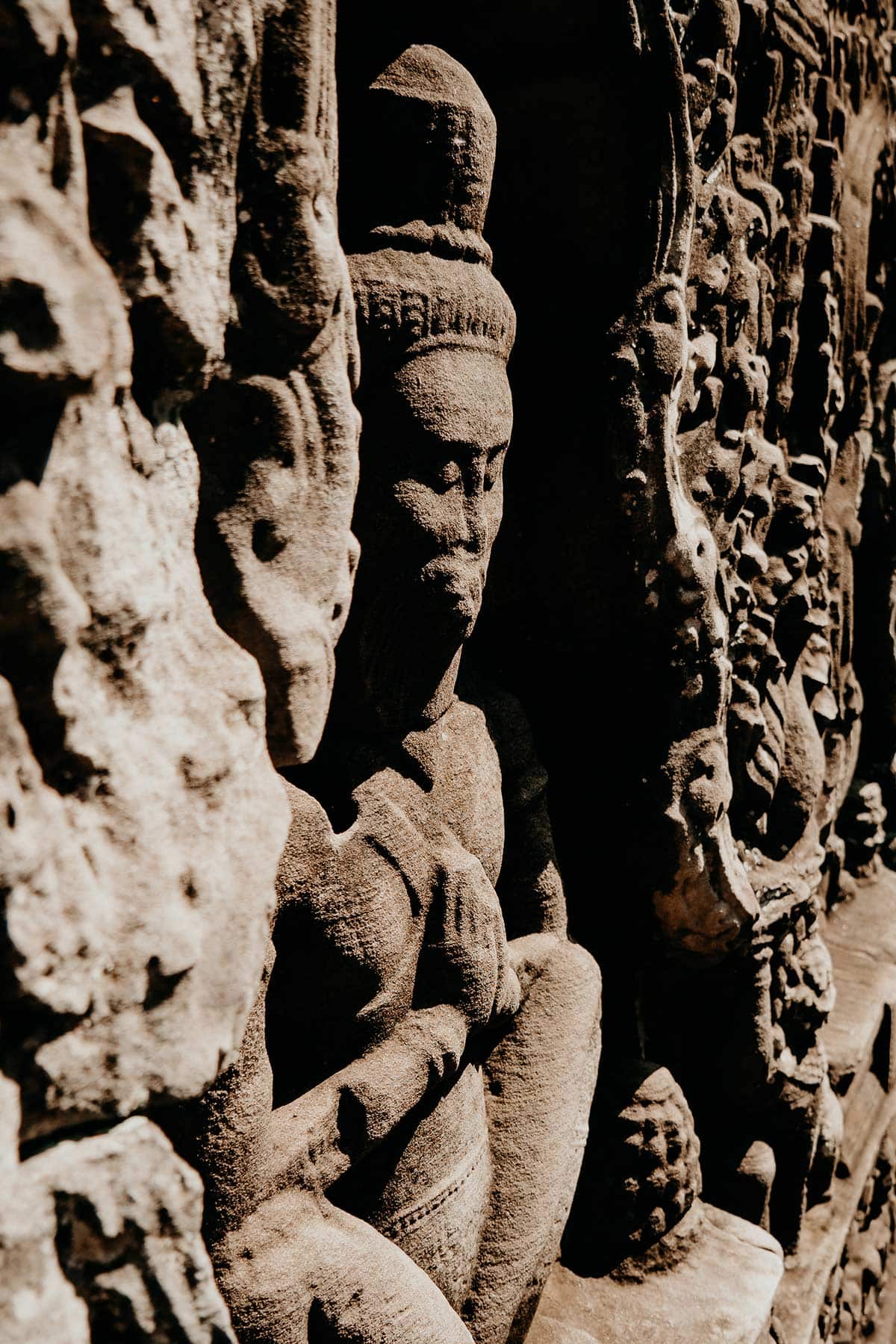
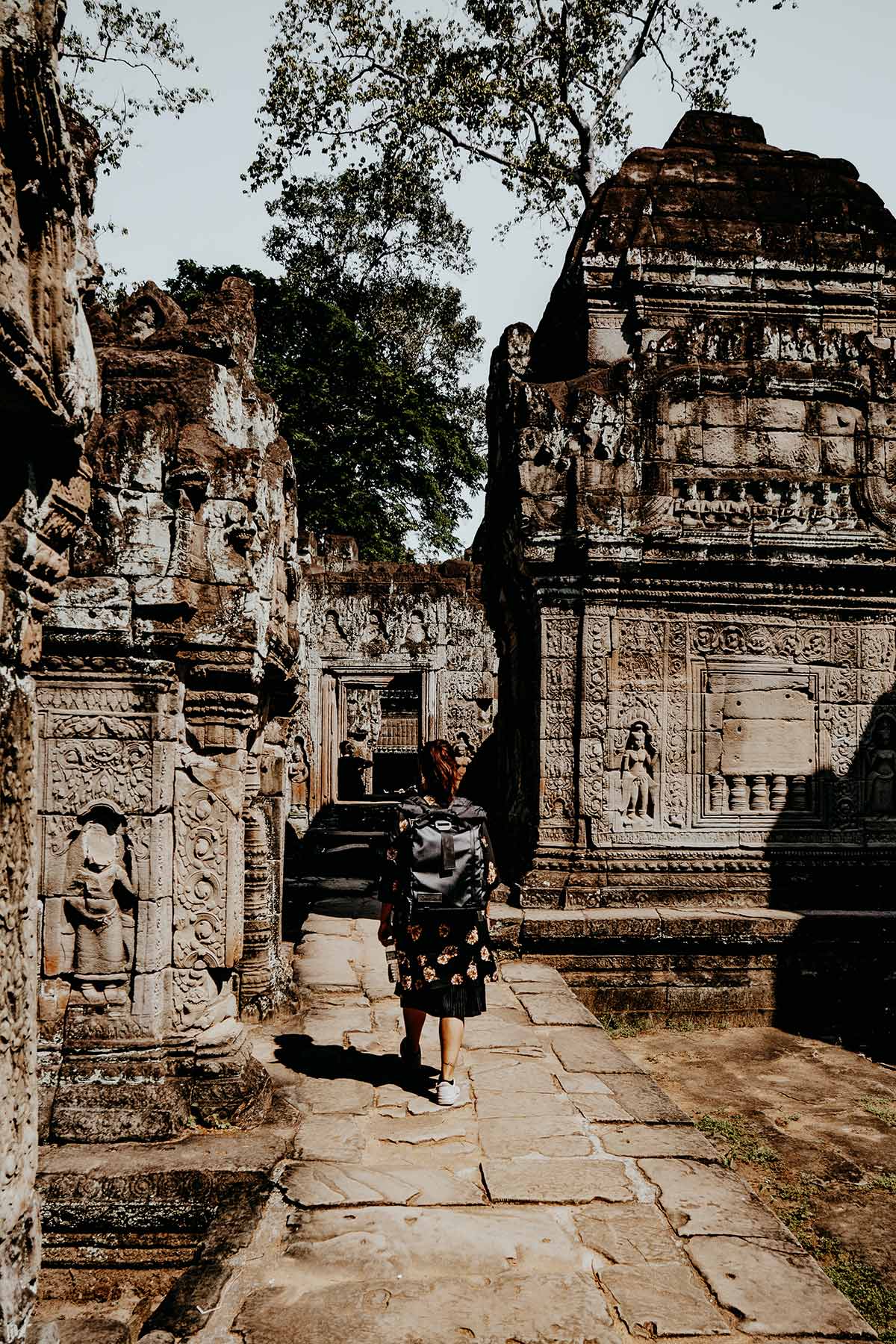
Angkor Wat
Angkor Wat is the main temple of Angkor and that makes it the number one reason for people to travel to Cambodia. Angkor Wat, meaning ‘City Temple’ is the heart and soul of Cambodia and is most mesmerizing when visiting at sunrise.
The reflection on the water, when the sun rises above the temple, is such a great thing to witness if you forget about the other thousand people beside you. Although it is the largest temple at Angkor it isn’t the most spectacular if you ask me.
Where | Angkor Wat
Date | 1150 CE
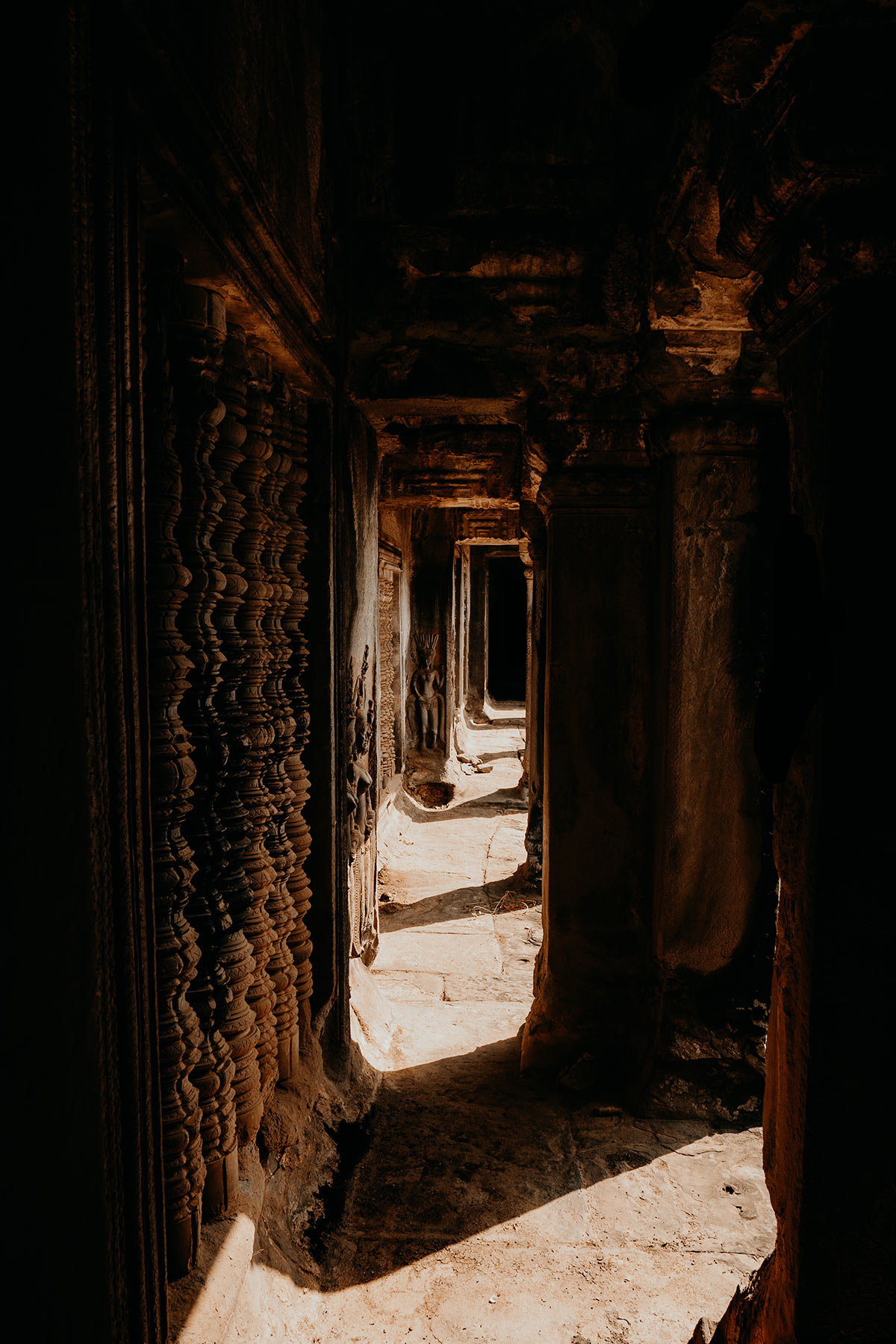
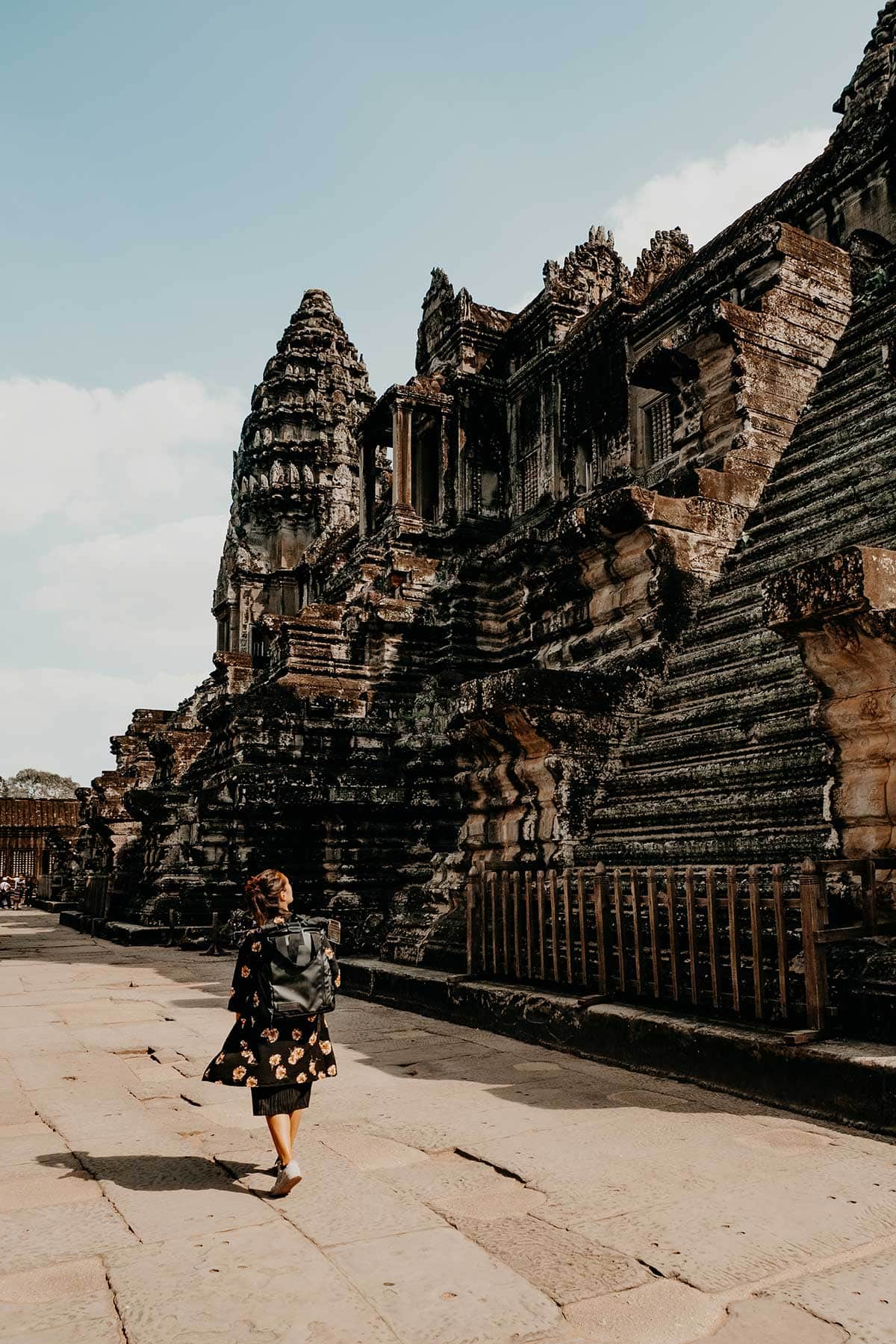
Ta Keo
Ta Keo is a pyramidal structured temple and is 21 meters high. Climbing to the top of this temple can be really hard as the stairs are really steep. With almost no decoration this temple stands out to the other temples with its simplicity. It is also the first temple in Khmer history that is built entirely out of sandstone.
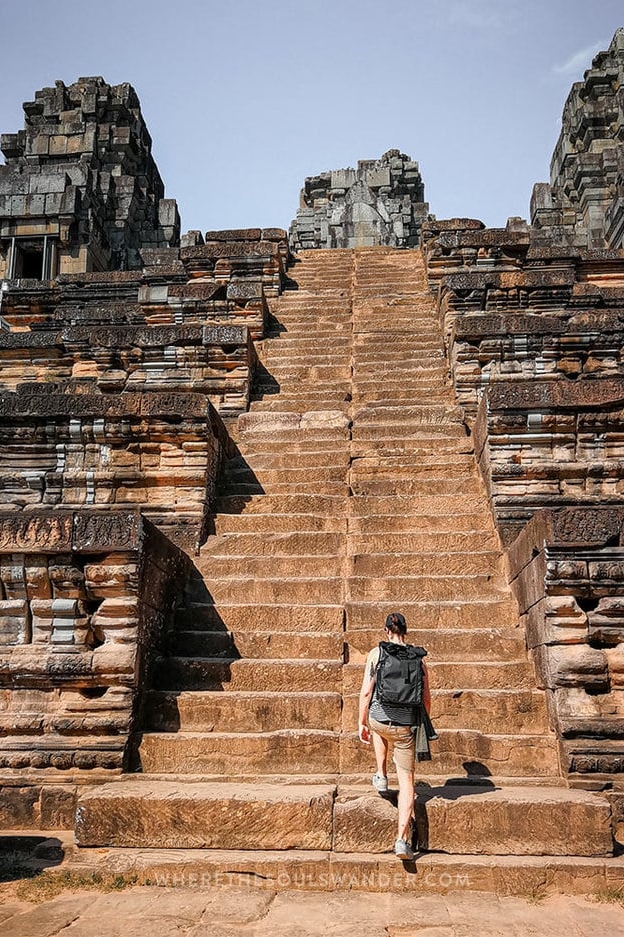
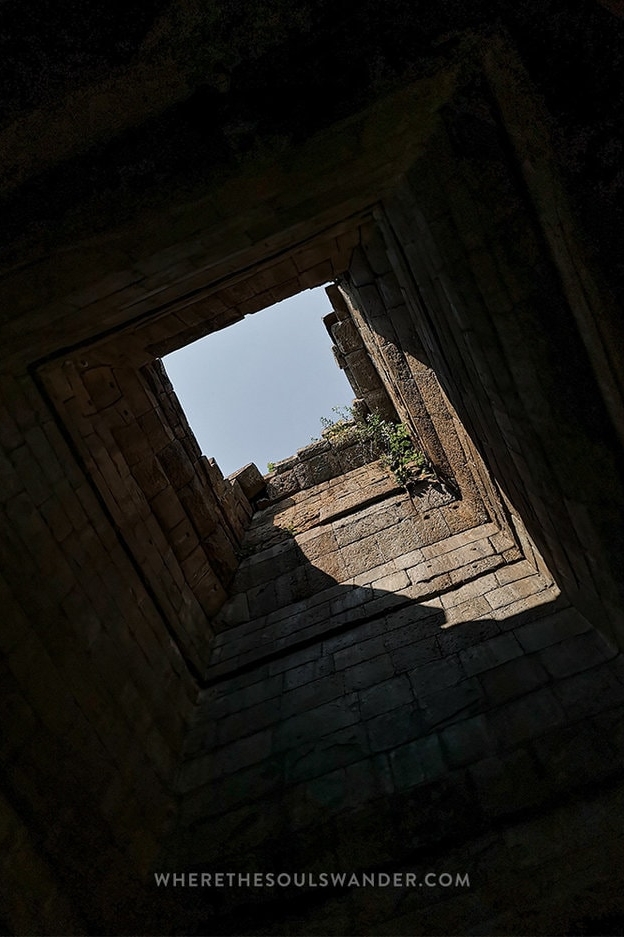
Thommanon
Thommanon is located just outside Angkor Thom and is a single-towered temple. The carvings of this temple are really well preserved and the aged temple walls make a nice contrast with the surrounding jungle.
The Victory Gate
One of the two entrances of the eastern wall of Angkor Thom is named The Victory Gate. This gate was used to welcome soldiers that returned from battle when they entered the Khmer Capital.
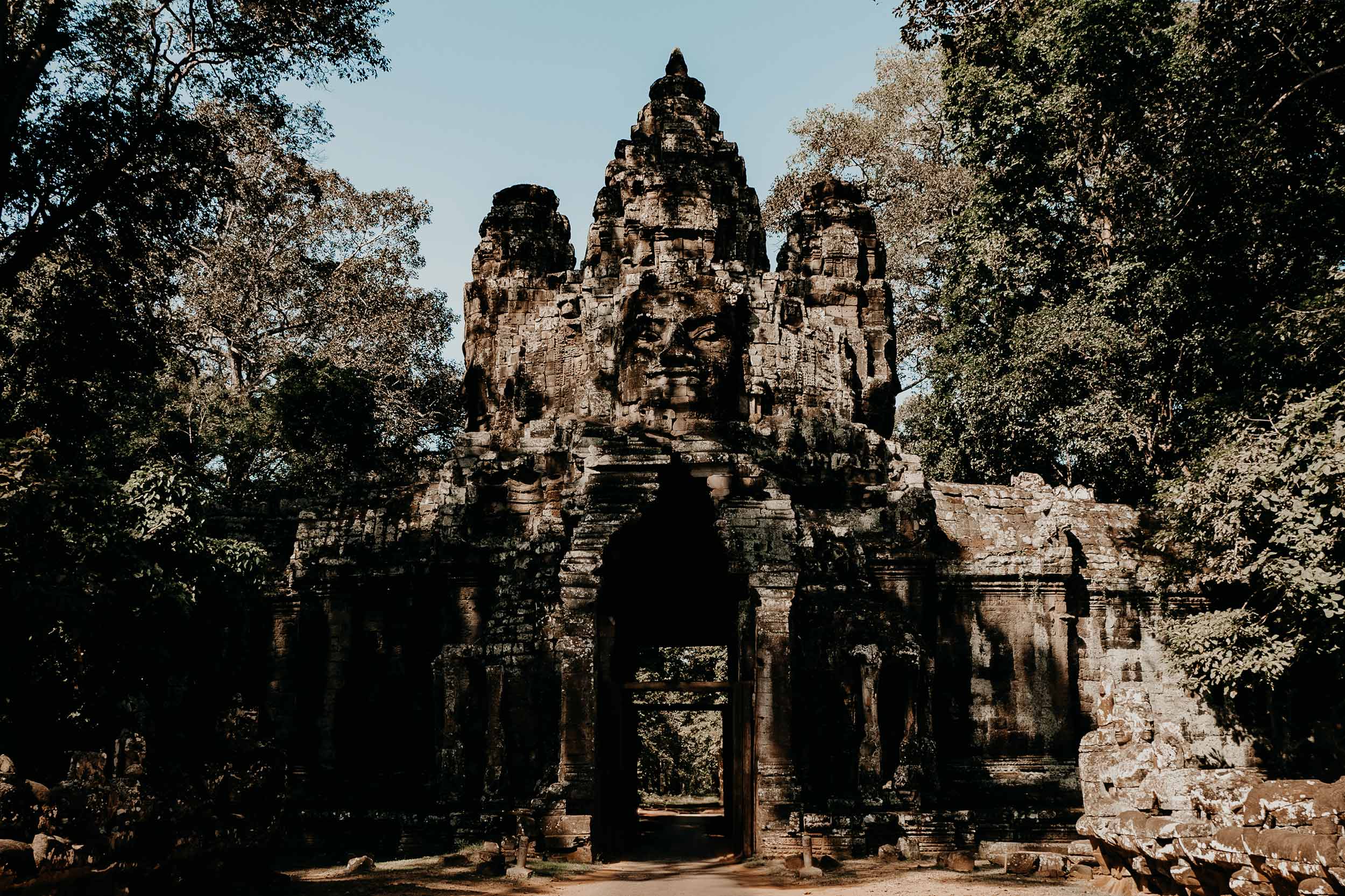
Other interesting Temples at Angkor
Some other temples where we heard a lot of good stories about are Ta Sohm and Banteay Srei. Don’t mind putting these two in your itinerary for Angkor.
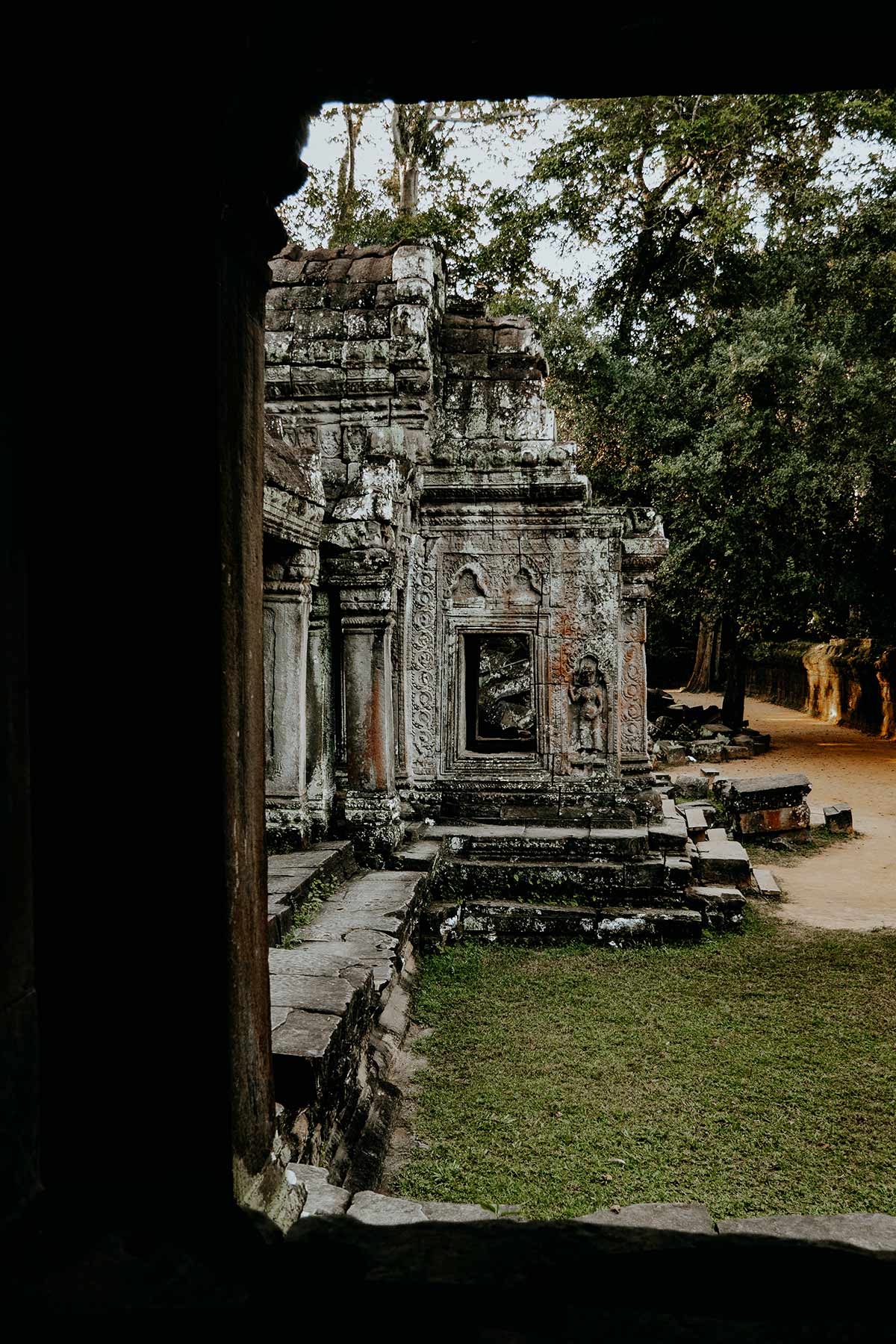
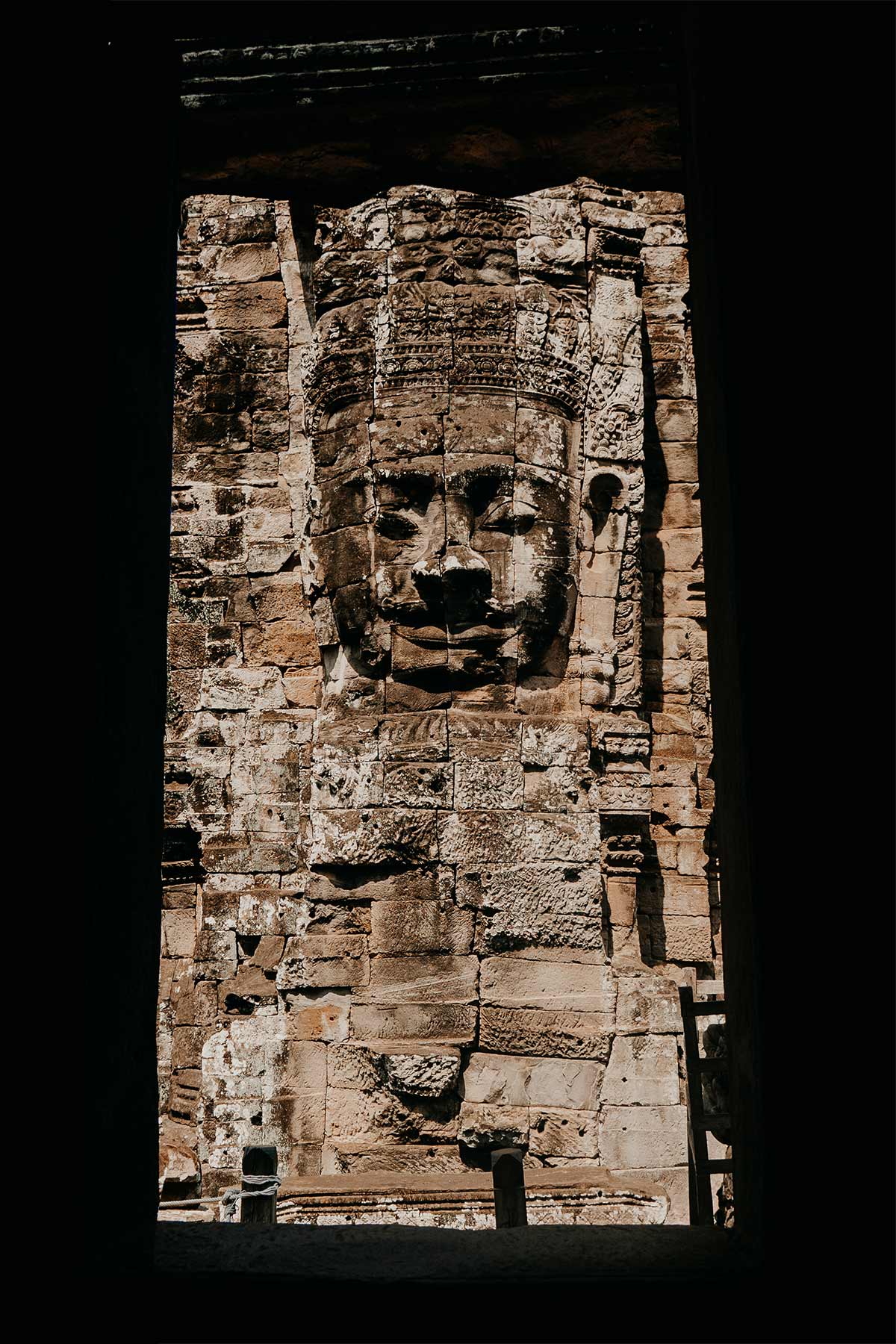
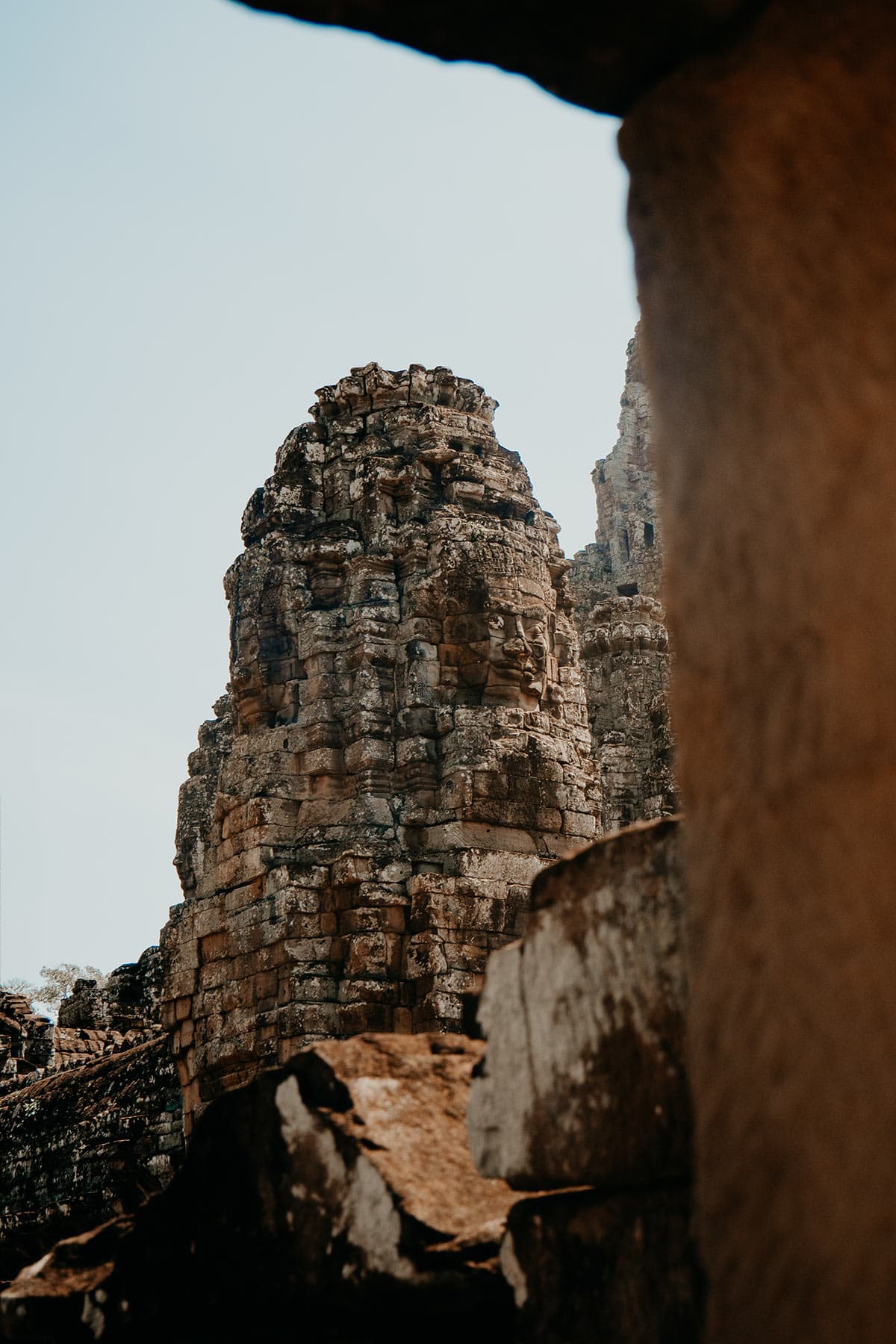
Angkor Wat | The travel essentials
Getting yourself an Angkor Wat guide
To get the most out of your time in Angkor it is wise to get yourself a guide. When you reach out to a tuk-tuk driver, you will almost instantly receive advice and a route depending on the number of days you are willing to explore the park.
We really had a fun time with our driver named Johnny Chantha, a friendly guy that speaks English very well. We personally liked the fact that we could tell our preferences and it was easy to talk about alternative routes. Combining his advice with our plan gave us a lot of photography freedom which you would like to have as well I guess?
The cost for an 8-hour guide is $12 and visiting Angkor Wat at sunrise costs $5.
Our custom tour + sunrise at Angkor Wat cost us $20 for a full day of exploring. If you get yourself a tuk-tuk, try to aim for a price between $12 and $20.
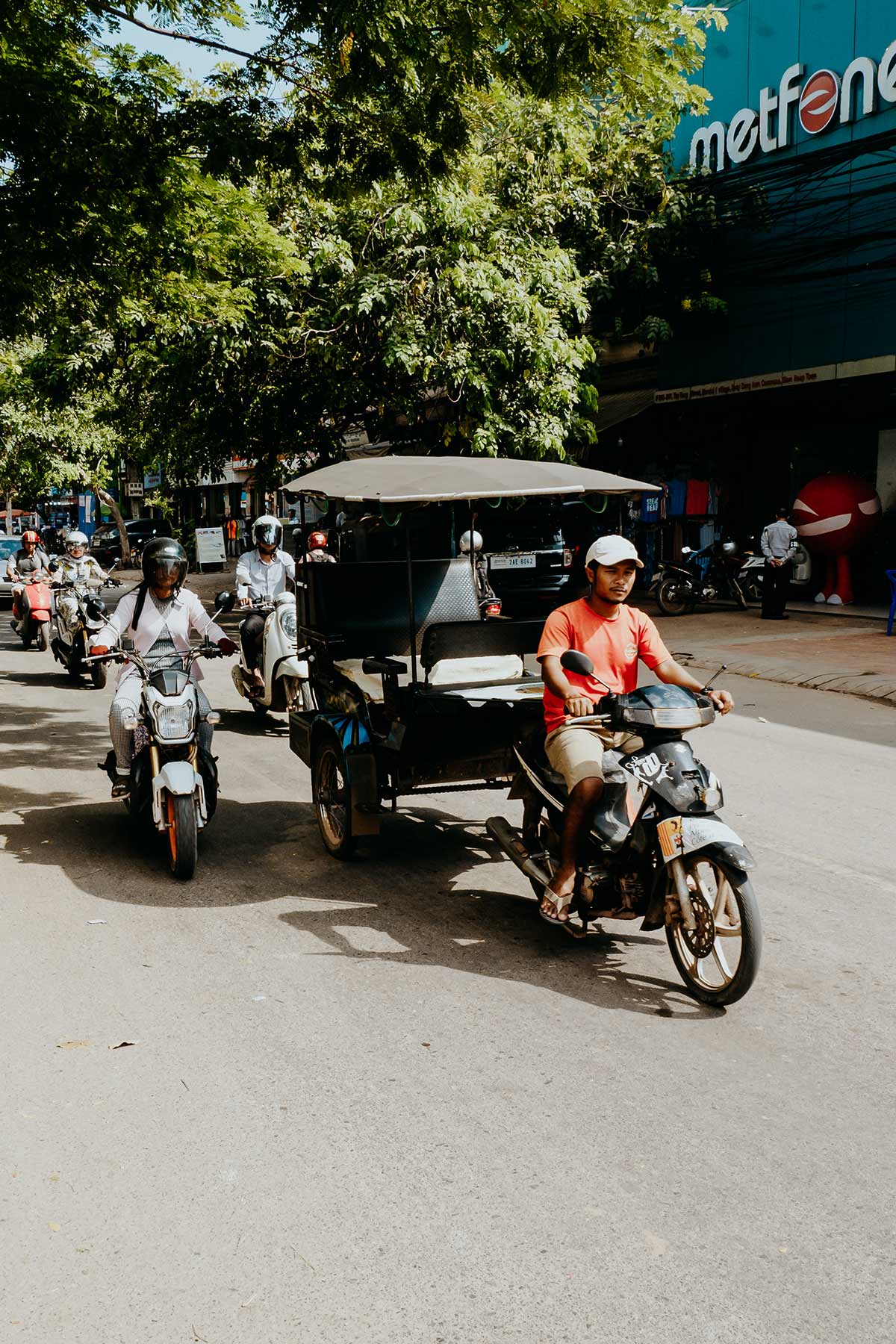
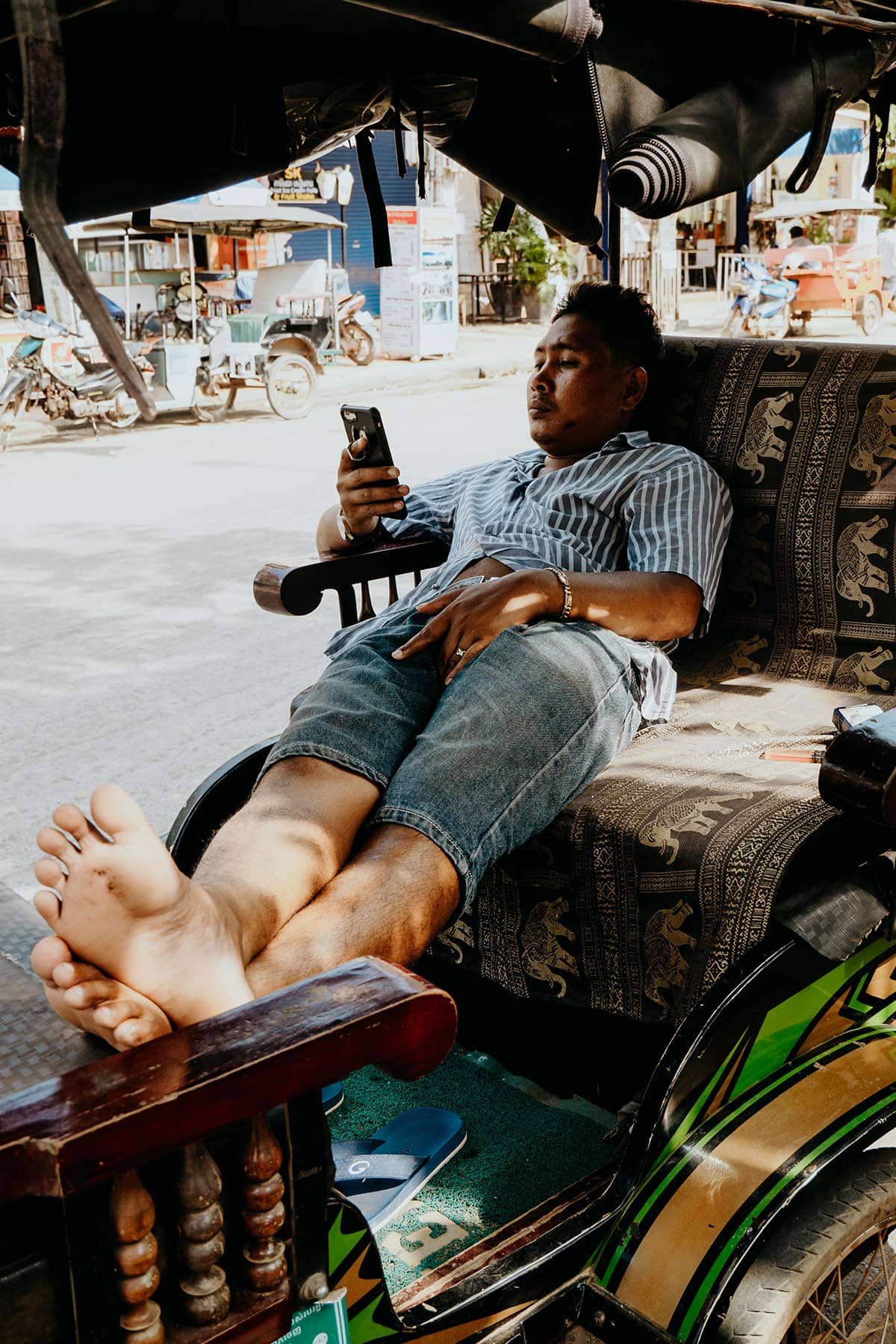
Things to know before visiting Angkor Wat
Using a drone in Angkor Wat | At the Angkor temple complex, it is not allowed to fly a drone without a permit. Getting a permit to fly at Angkor seems to be a difficult task. On this website, you can find more information about obtaining a drone permit.
Respect the temples | When you visit the temples try to be quiet and avoid talking out loud. Touching the temples and their carvings is considered disrespectful and so is smoking.
What to wear in Angkor Wat | Although the weather in Siem Reap can be quite hot, wearing clothes like a tank top, a short or a skirt above the knees is considered very disrespectful in Buddhist culture. Women should cover their shoulders and to avoid any problems men should do this as well. Always try to bring a scarf when you are about to visit temples while on the road.
Another recommendation is to wear comfortable shoes, some stairs are steep and hard to climb. And in some cases, the temple floor can be really rugged.
It’s also good to take a hat with you, most temples are in the open sun and it can get really hot during the day. Don’t forget to use sunscreen with SPF, wear sunglasses and drink enough water to stay hydrated.
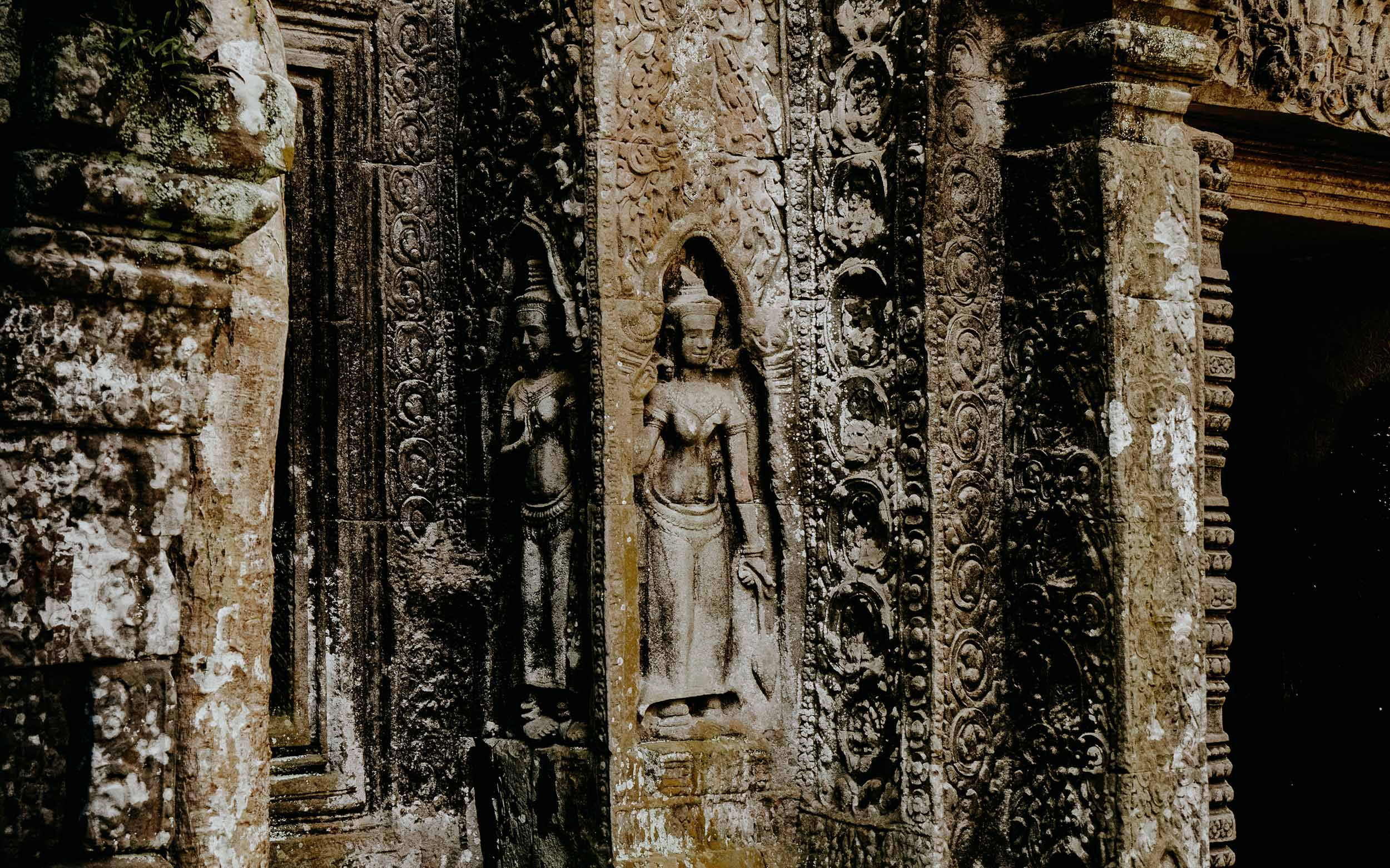
Where to stay in Siem Reap, your base to Angkor Wat
Given Siem Reap is developed in such a manner, it has become the perfect gateway from which to explore the Angkor Wat complex, which means that heaps of brilliant accommodation options can be found here.
Yet, with Angkor attracting hurdles of tourists, it’s smart to book your accommodation in Siem Reap ahead, especially if you plan on visiting during the peak months of November to March.
Some of my favourite picks out of the bunch include:
Bang for your buck | Monthara Angkor Residence, The Urban, and HARI Residence & Spa
Luxury | Angkor Village Hotel, Shintana Saya Residence and Pavillon d’Orient Boutique Hotel
Stay safe in Cambodia | Travel insurance
Though Cambodia is perfectly safe for travellers, I always strive to sort out my travel insurance before arriving in a foreign country, and I highly advise anyone else to do the same.
Where we prefer that everything goes smoothly during our travels, something unfortunate can happen at any moment, whether it’s an injury or an accident on the road. When that happens, it is better to be safe than sorry.
Heymondo | Whether you’re going on a 3-week backpacking trip, or planning a long stay somewhere abroad, Heymondo has excellent insurance options either way – plus full COVID-19 coverage and a handy app with 24-hour medical assistance. Readers of WTSW receive 5% off any insurance policy, more information here.
Cheers!
I’ve been on this travel blogging journey since 2019.
If you appreciate what I do here, these are some ways you can support me.
